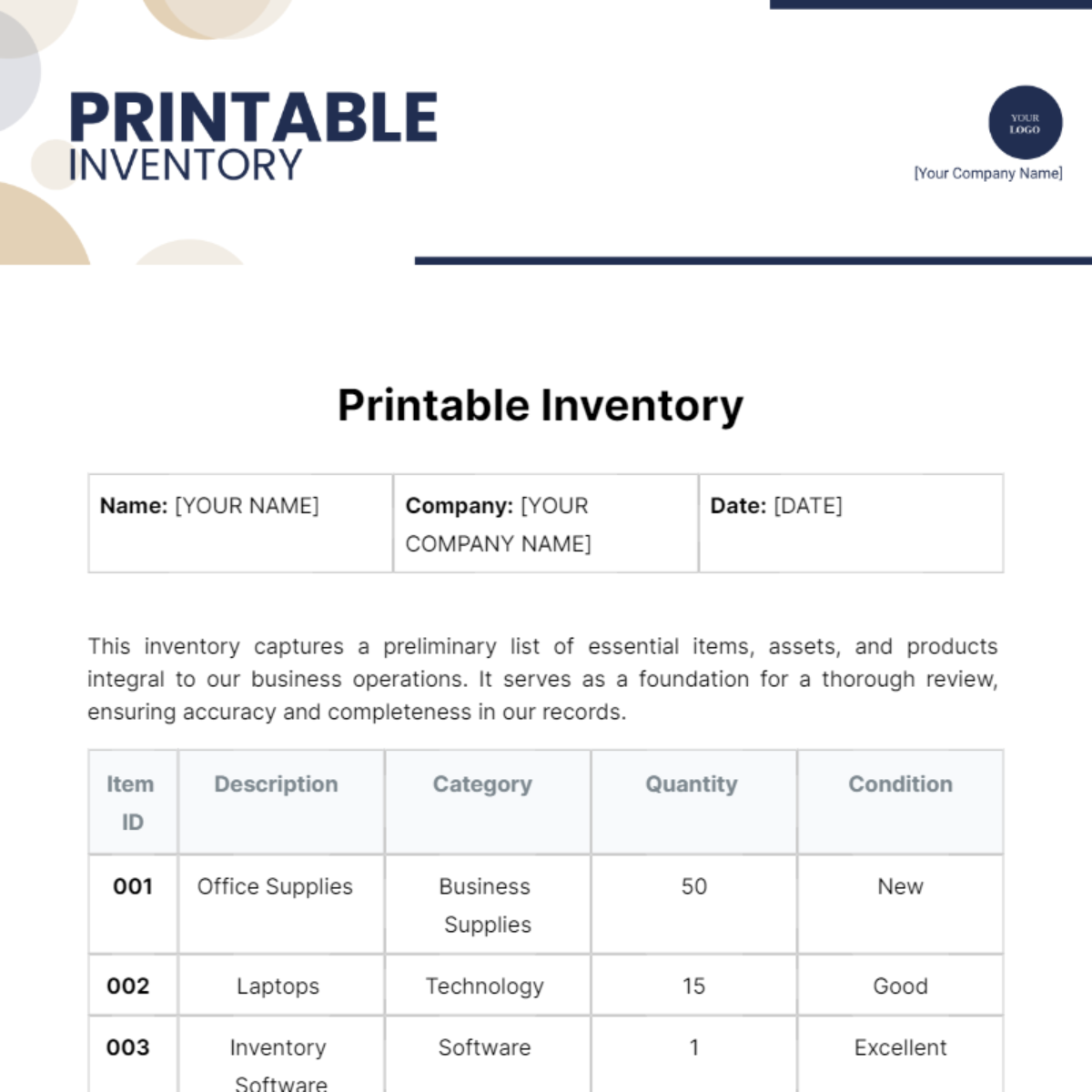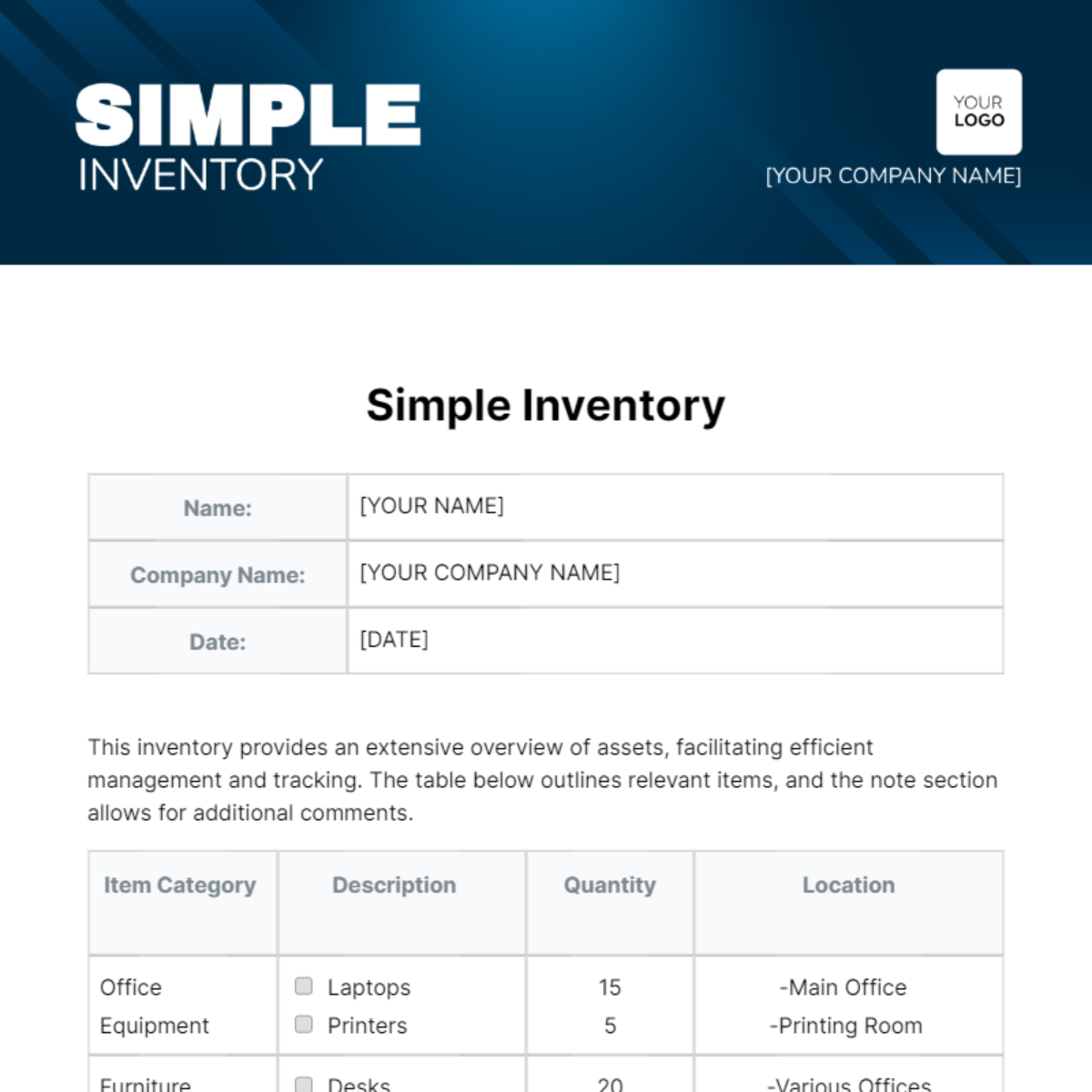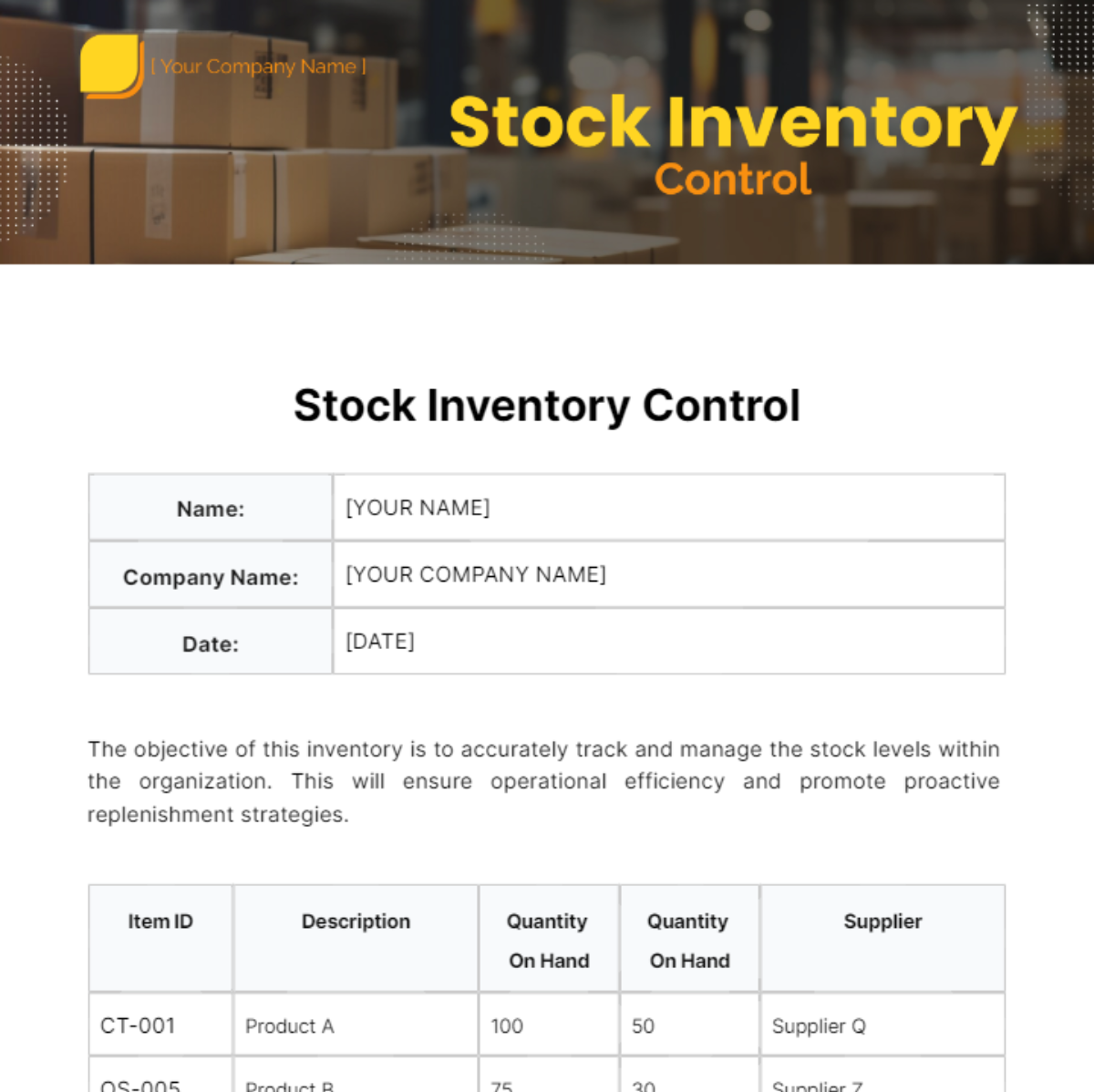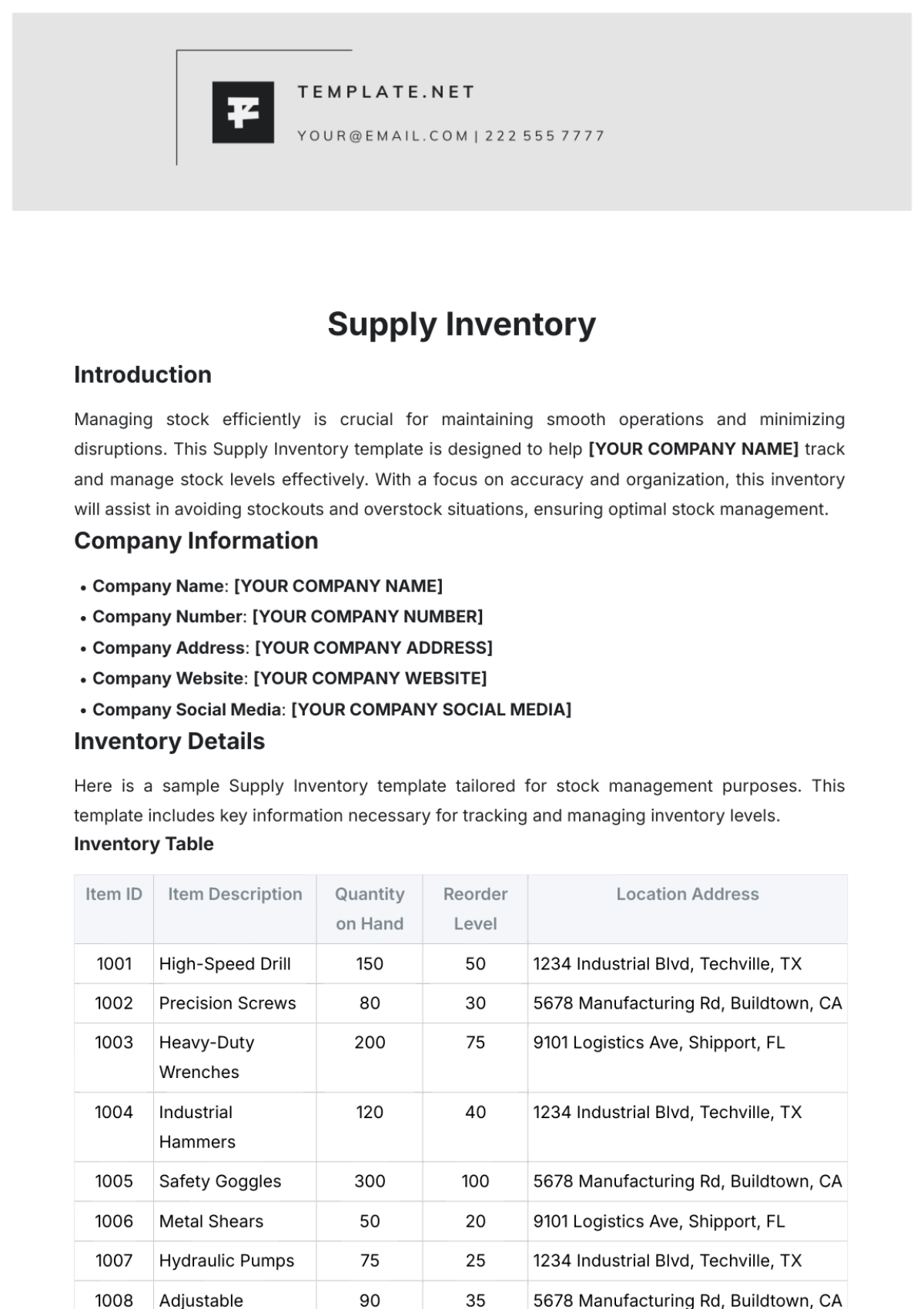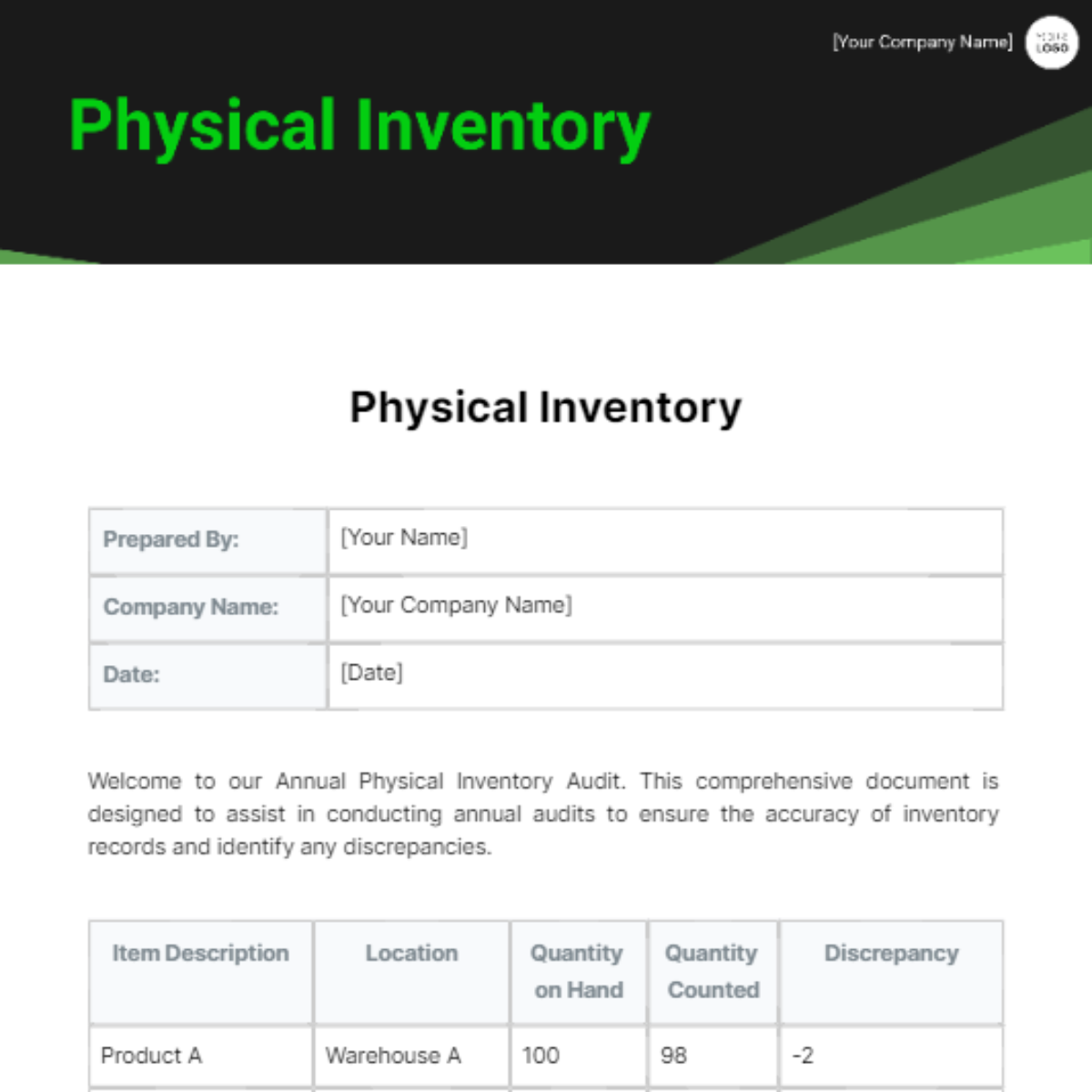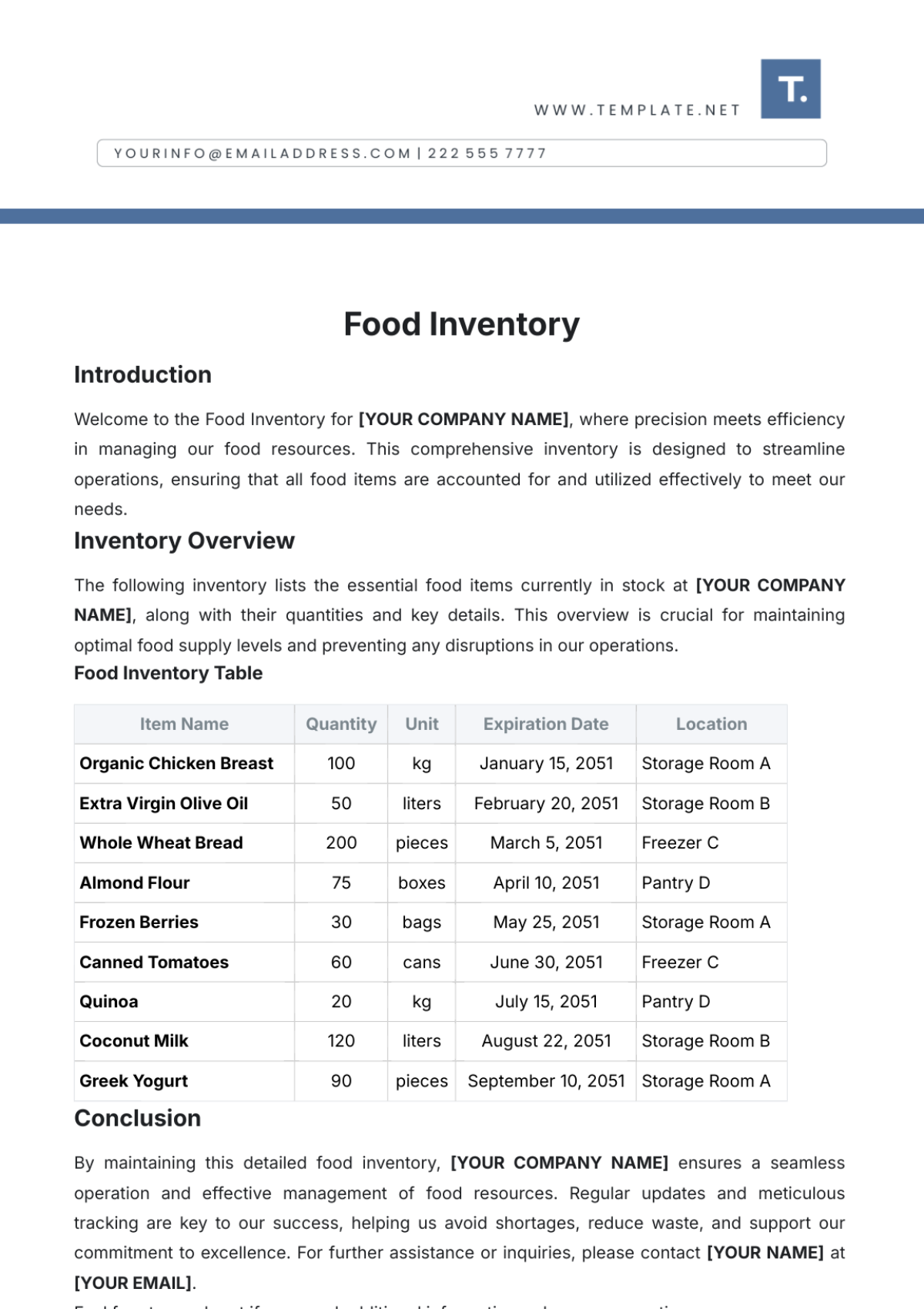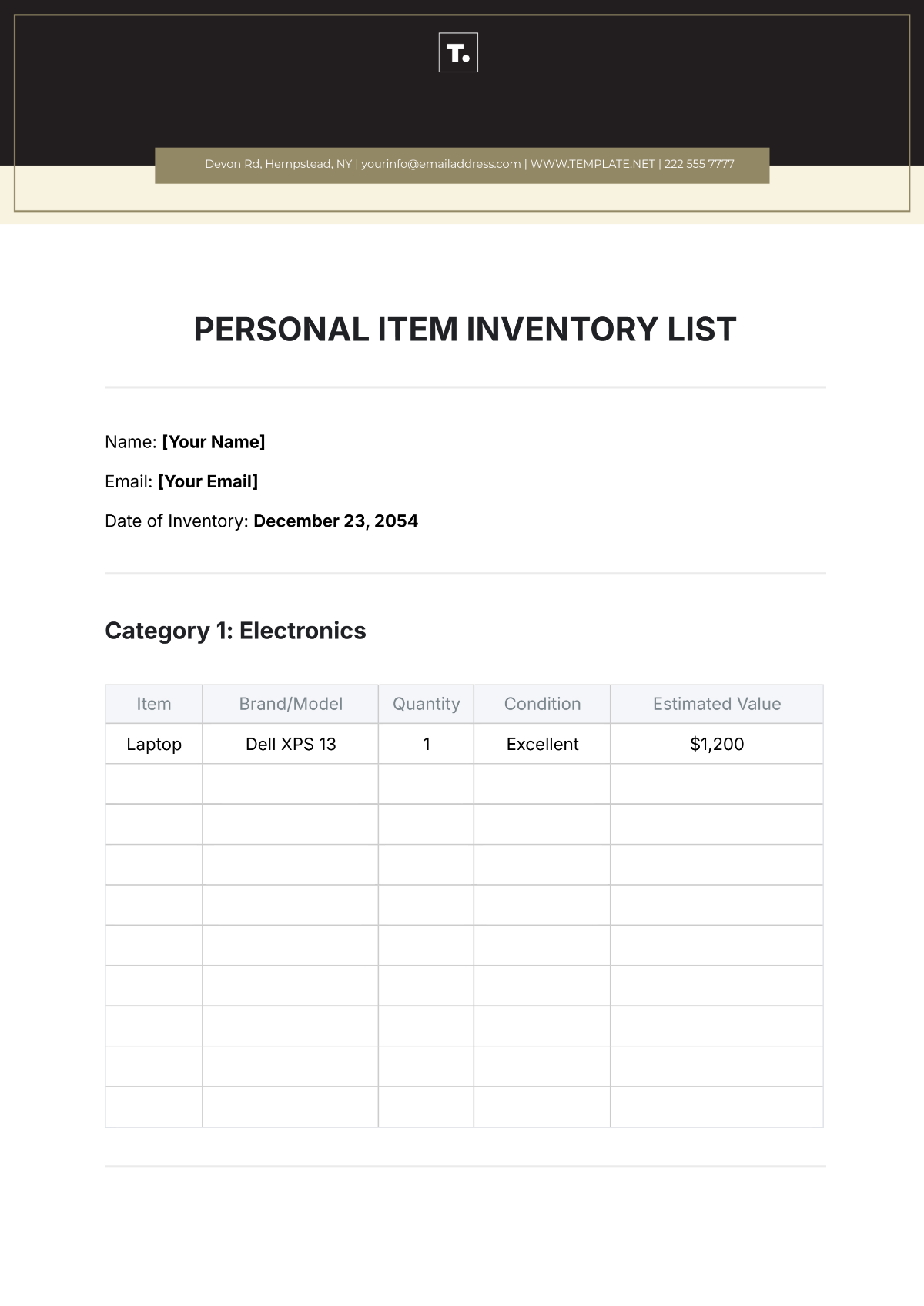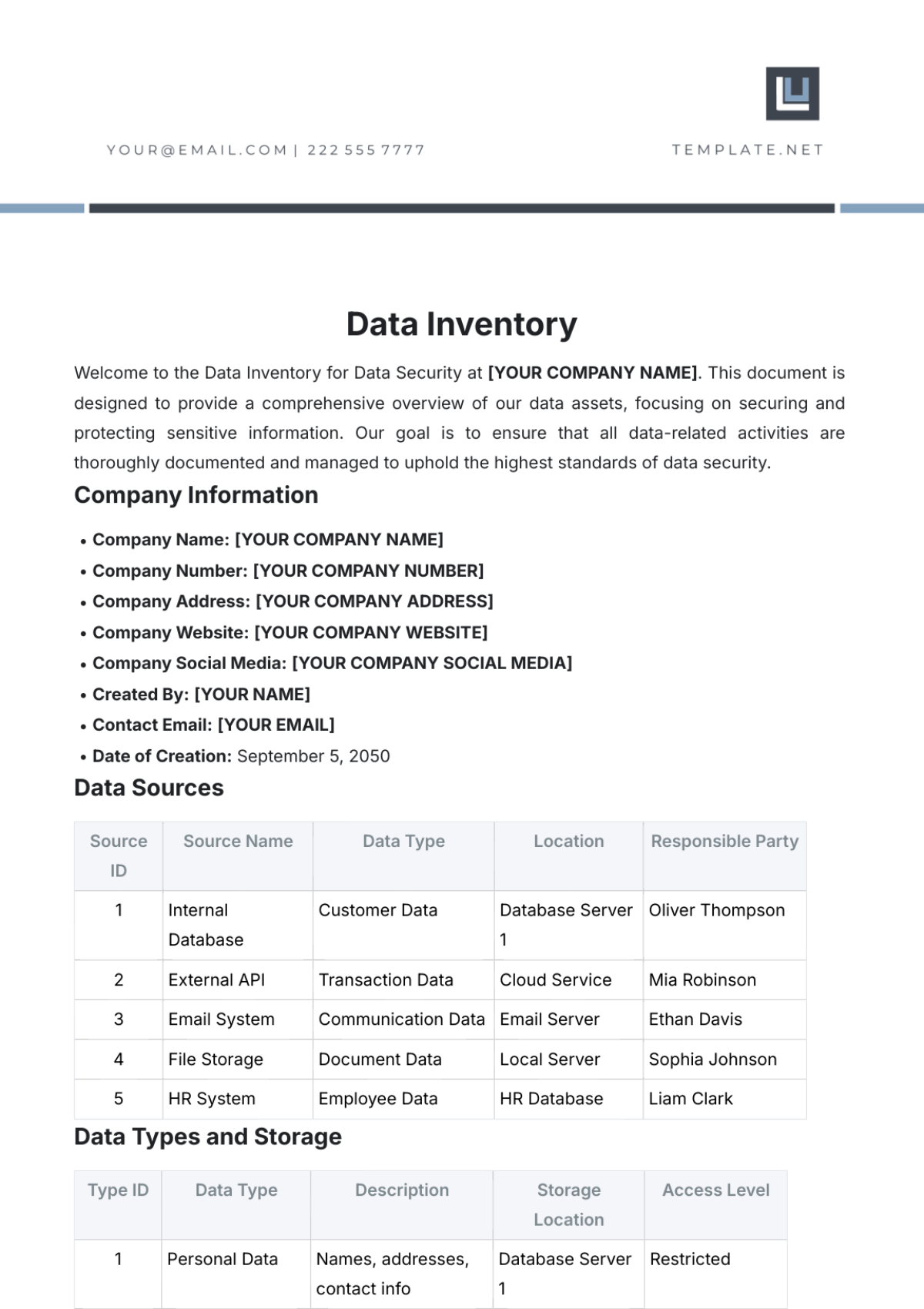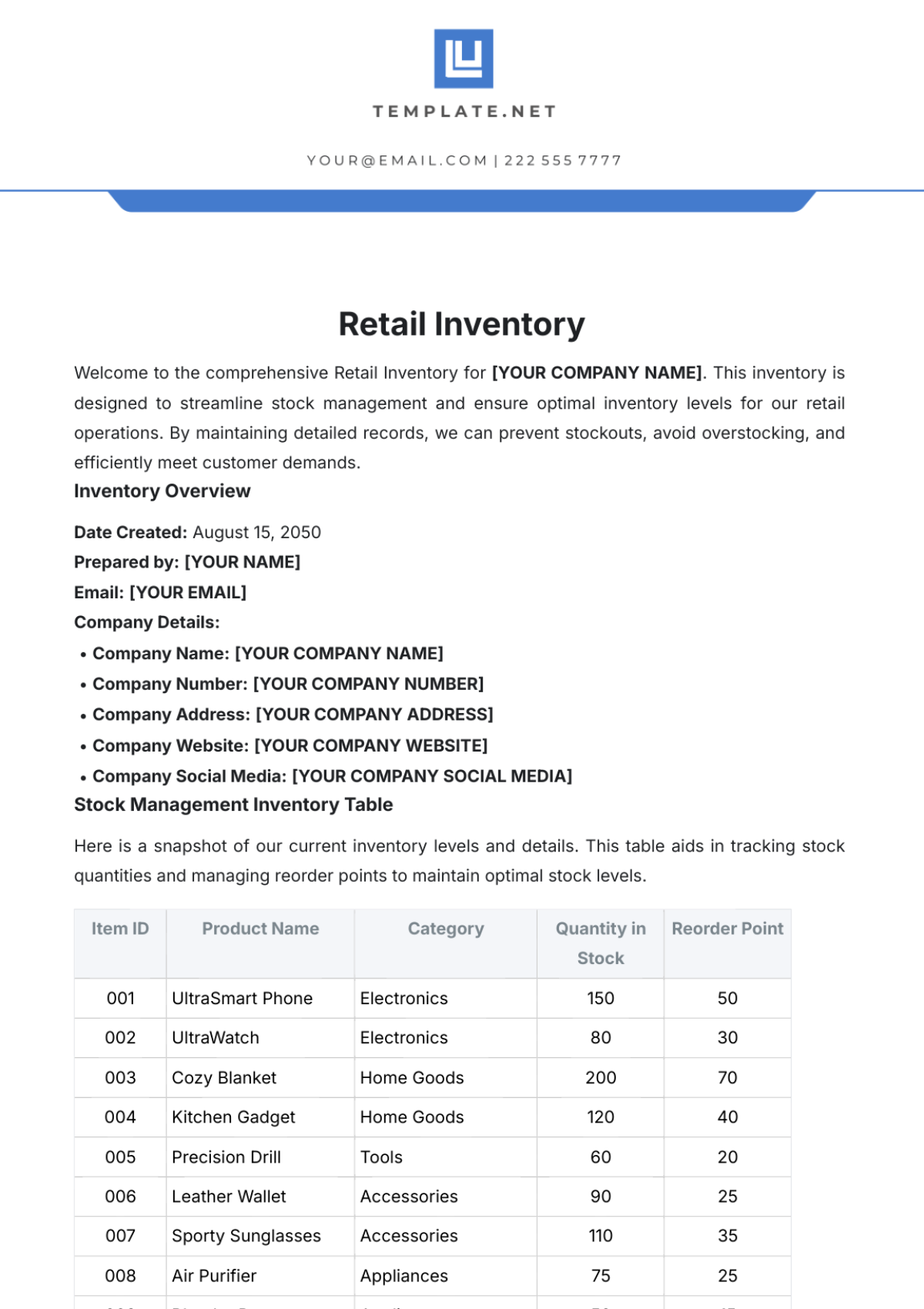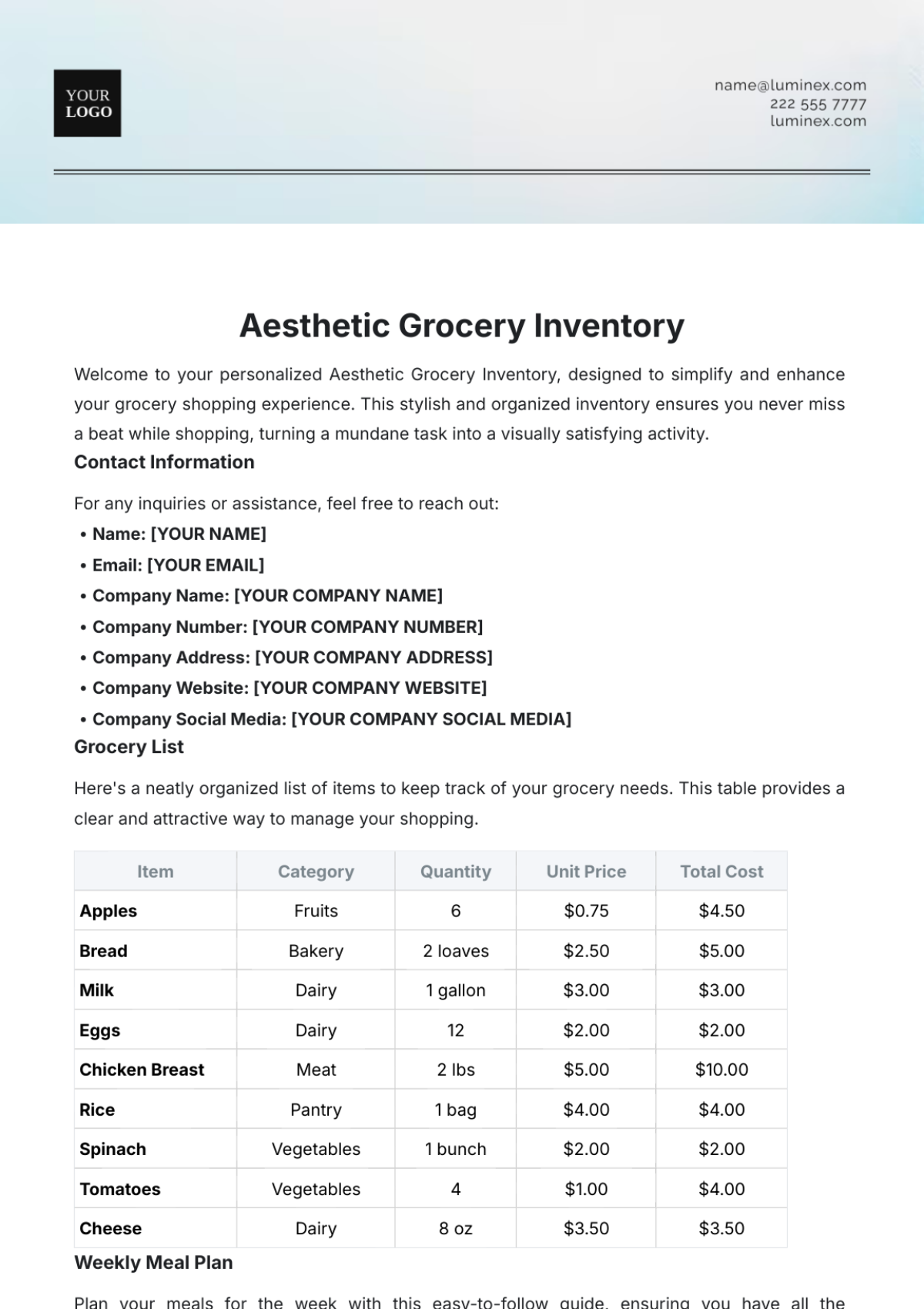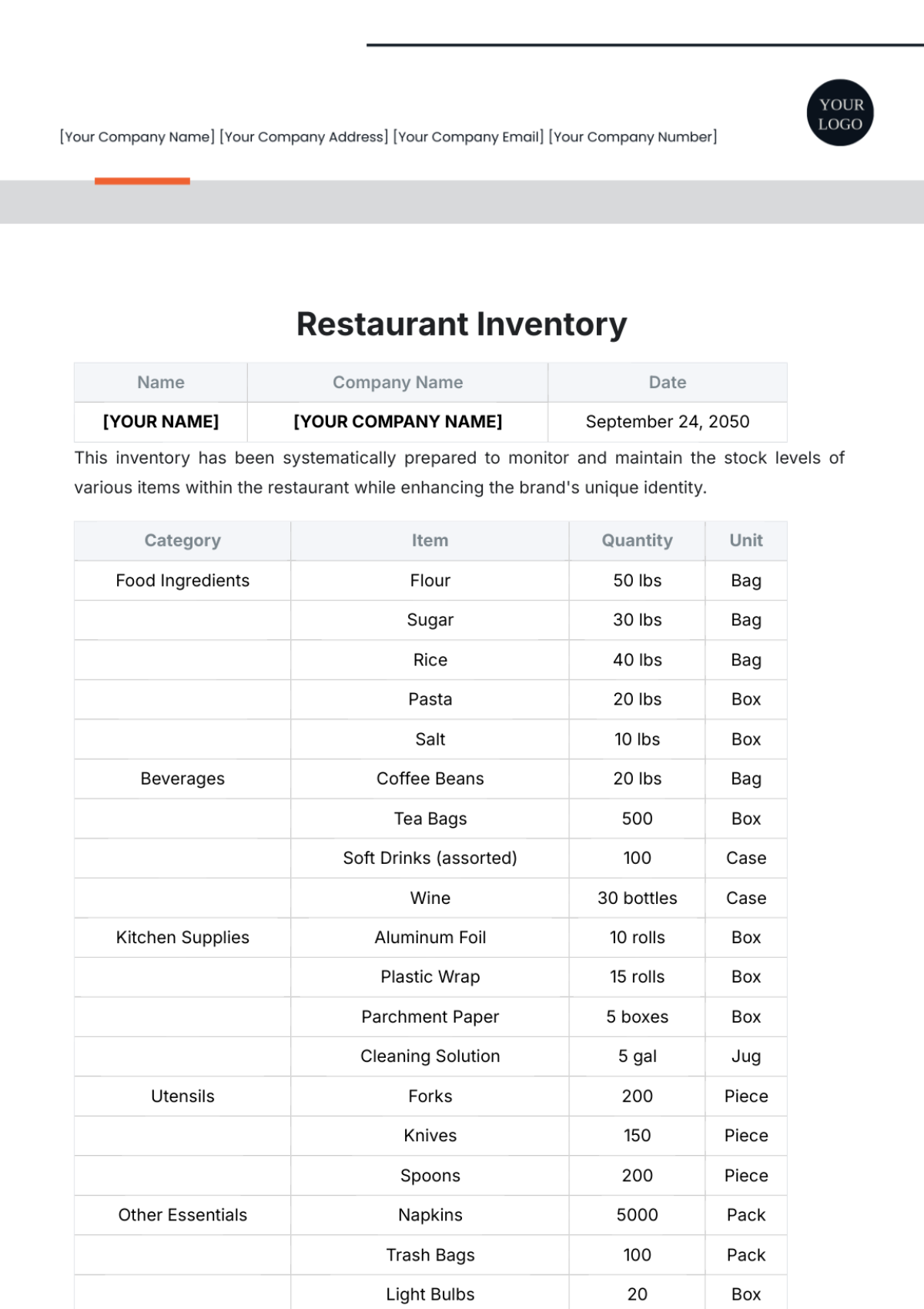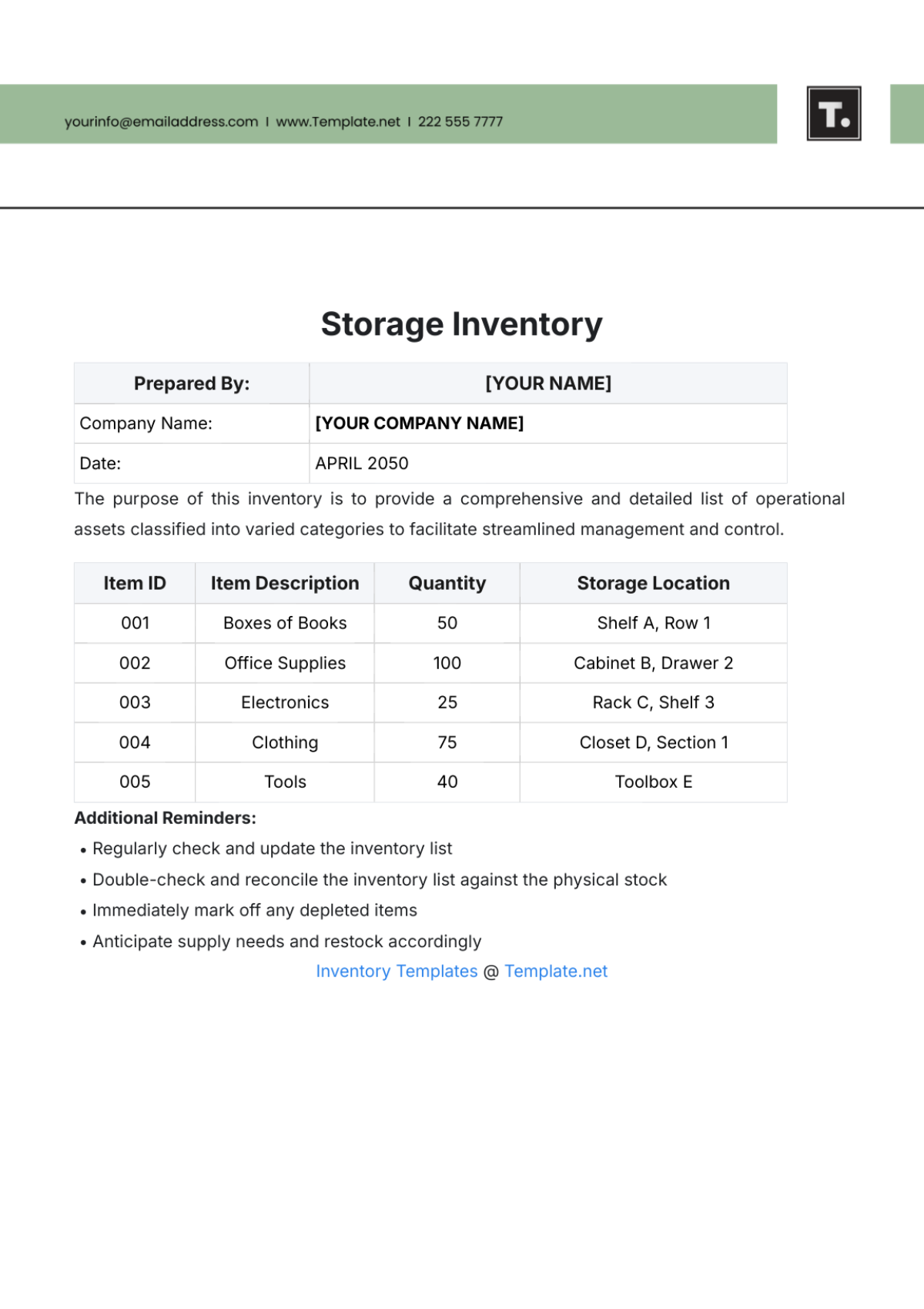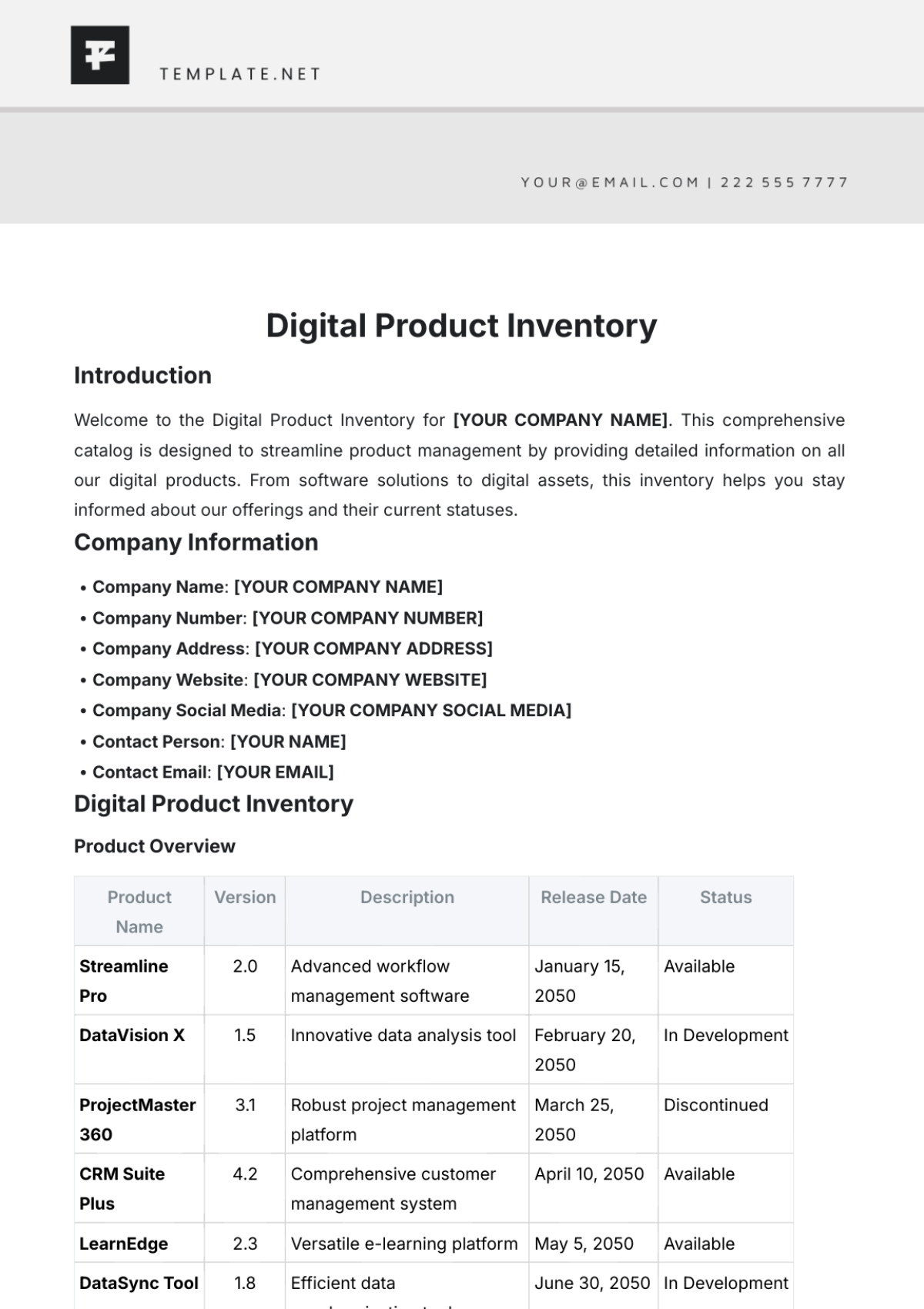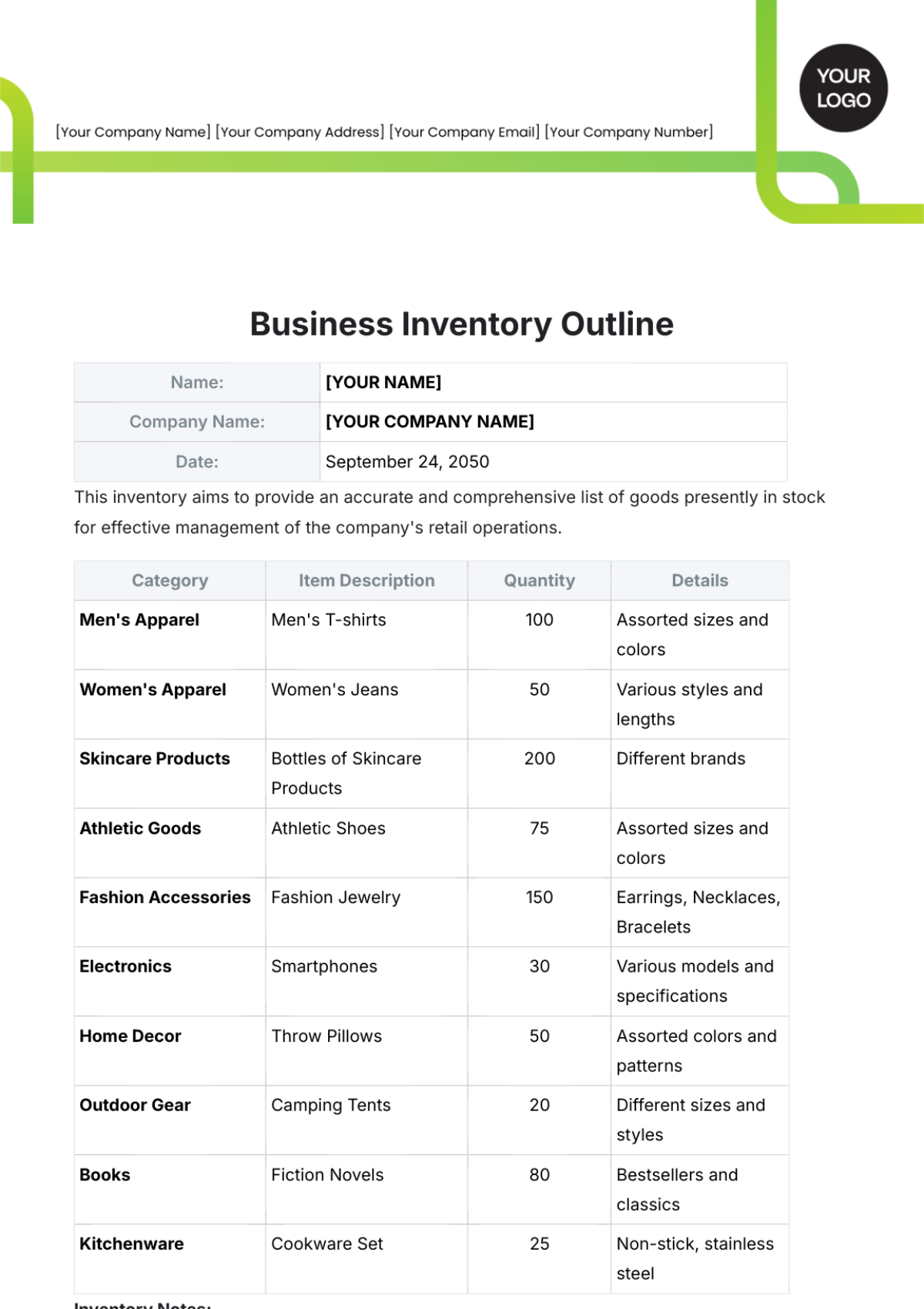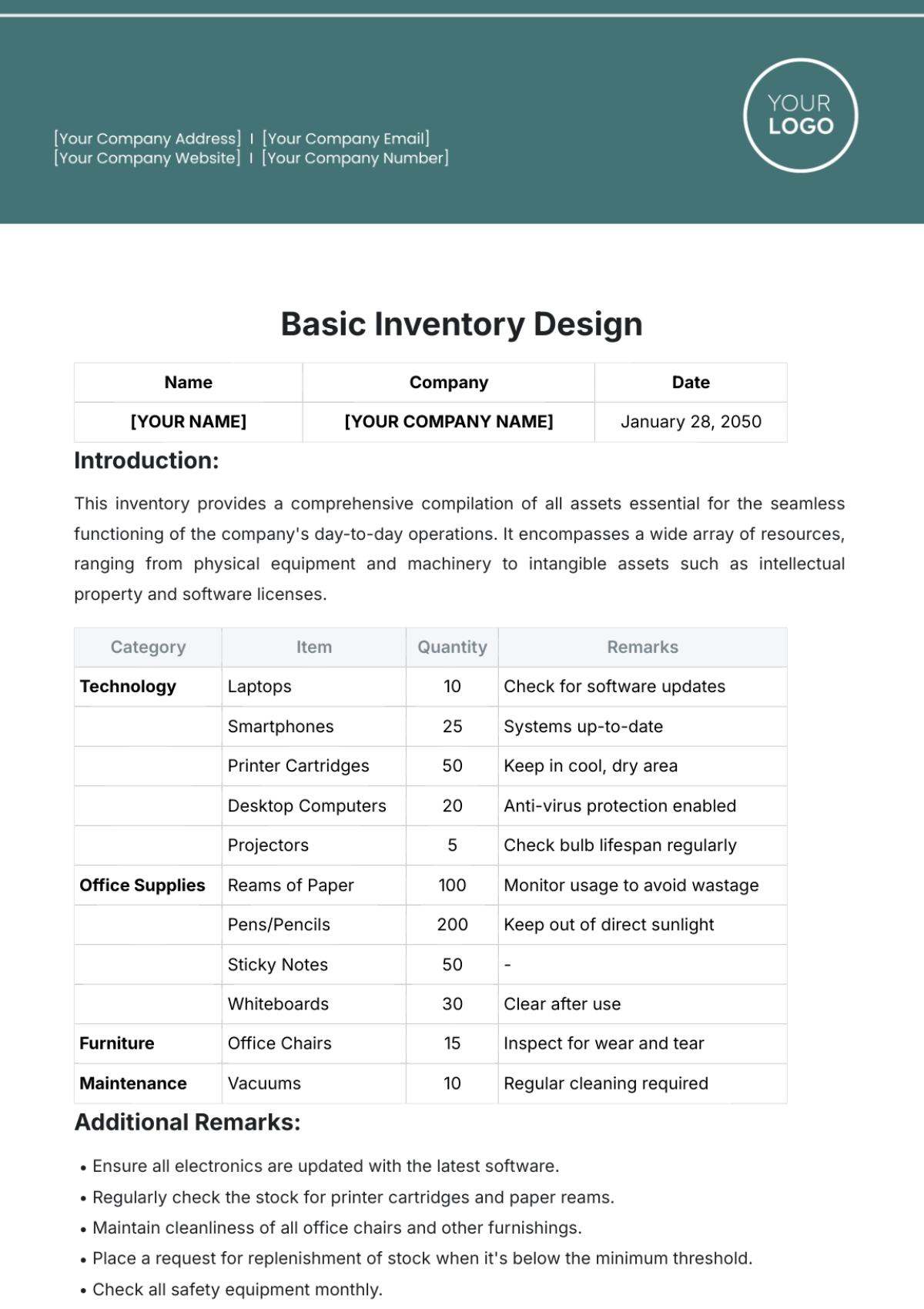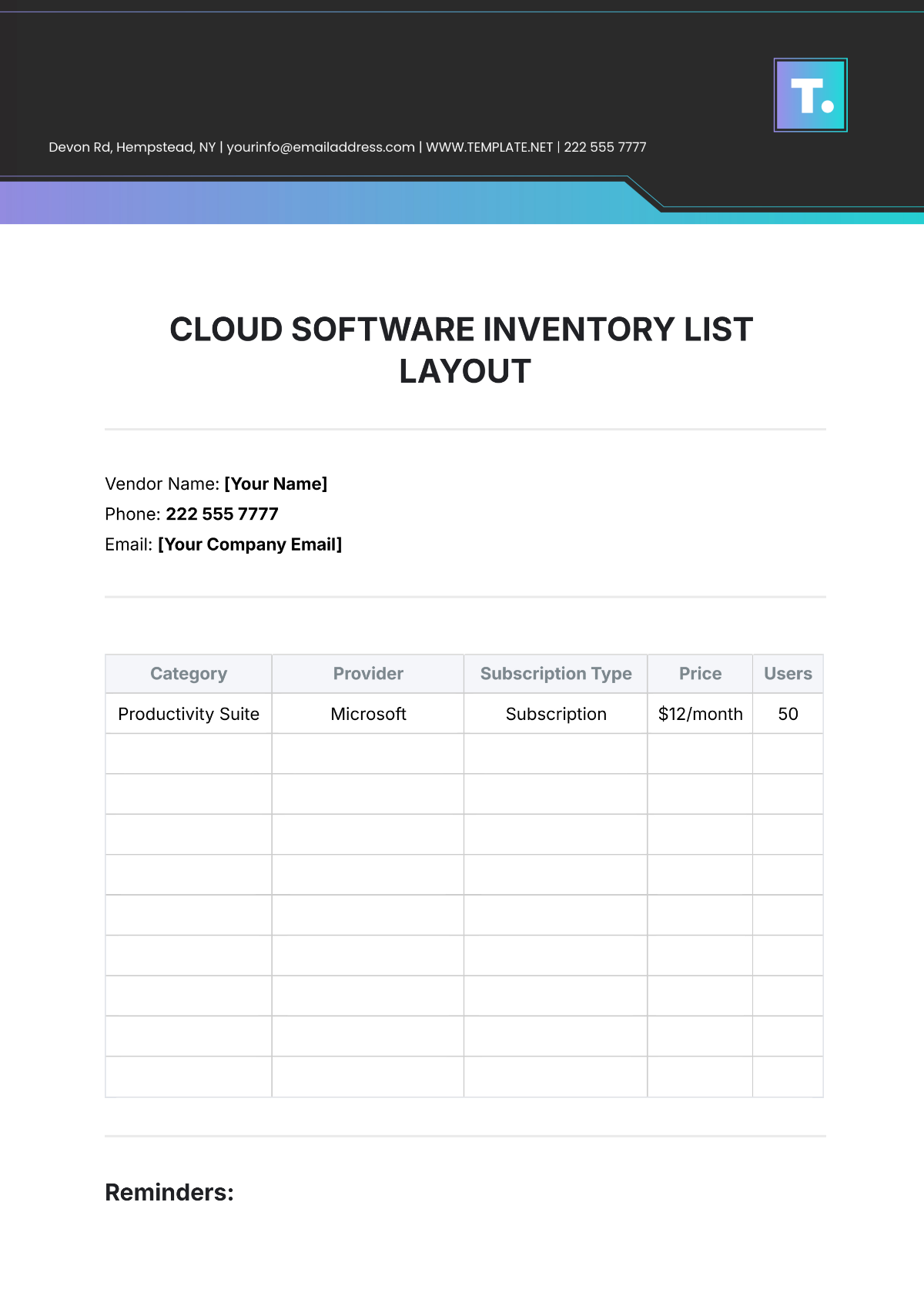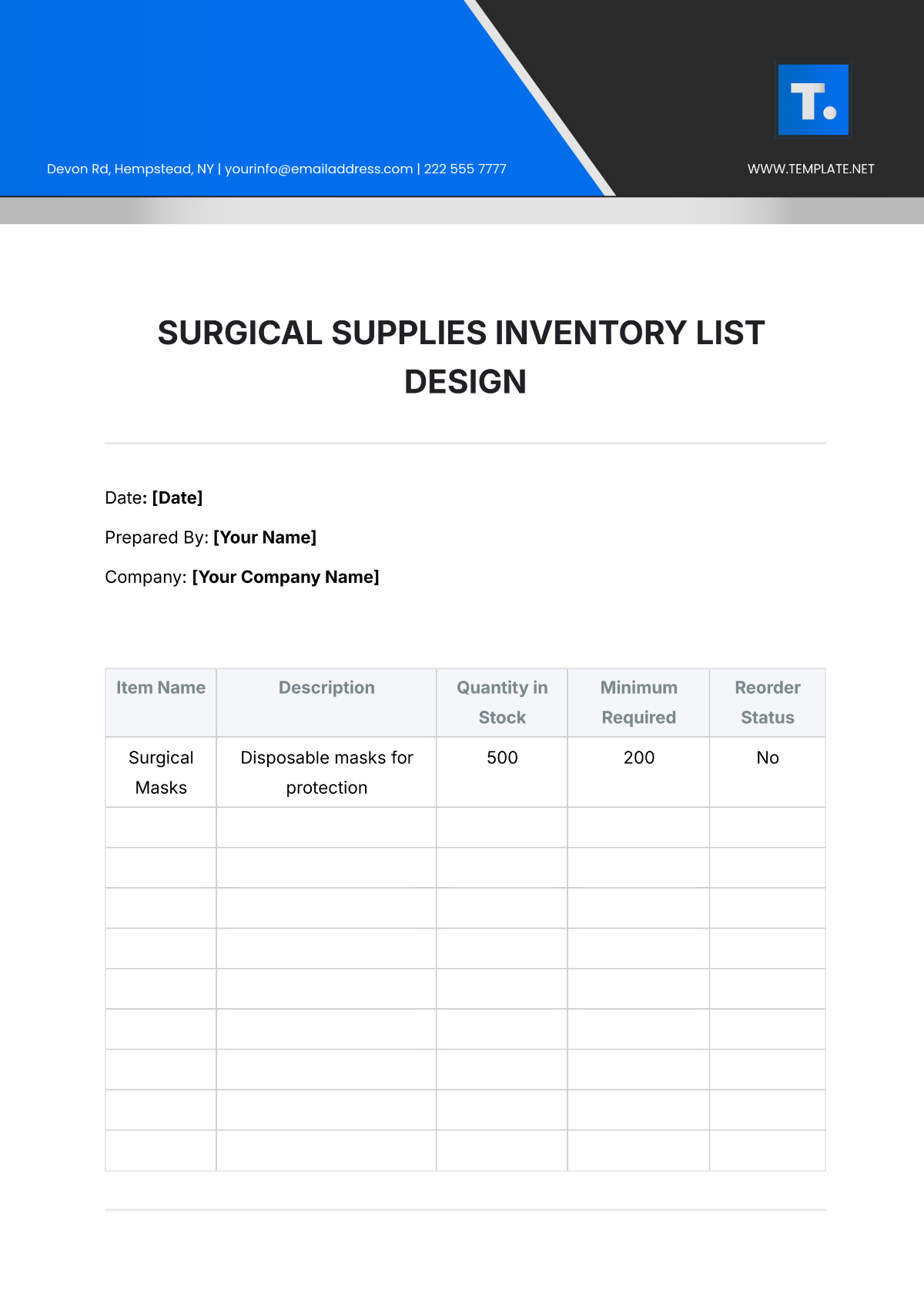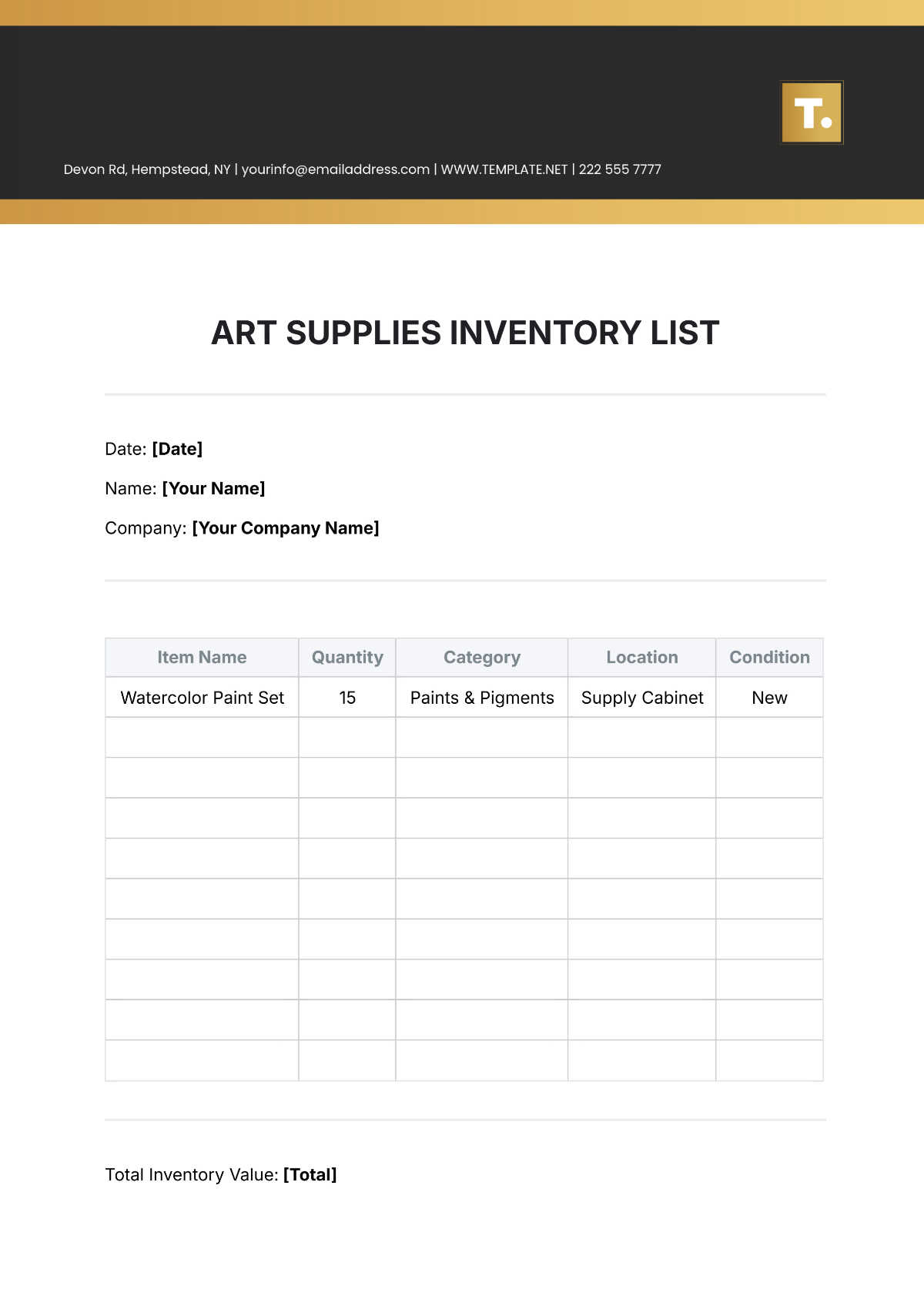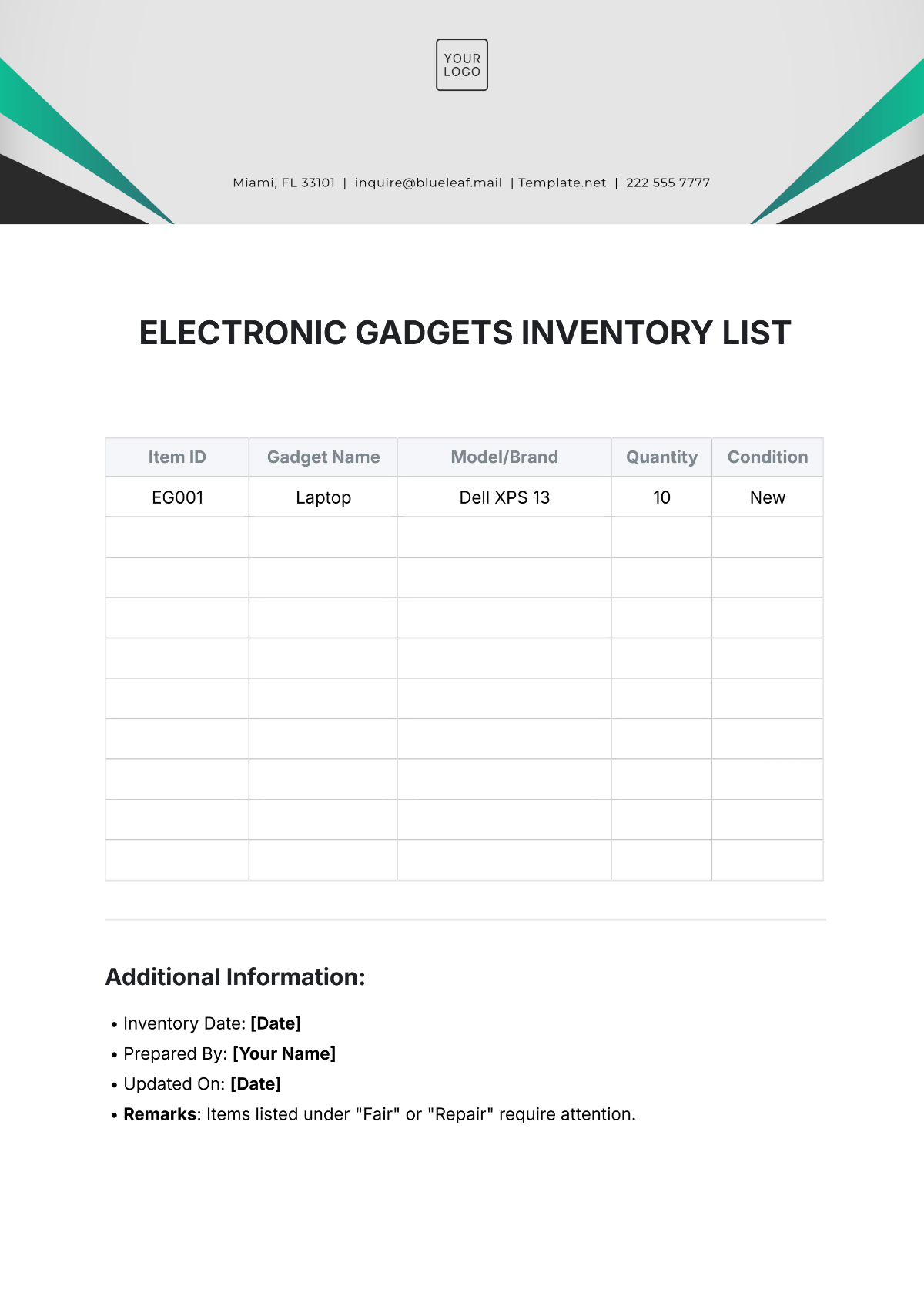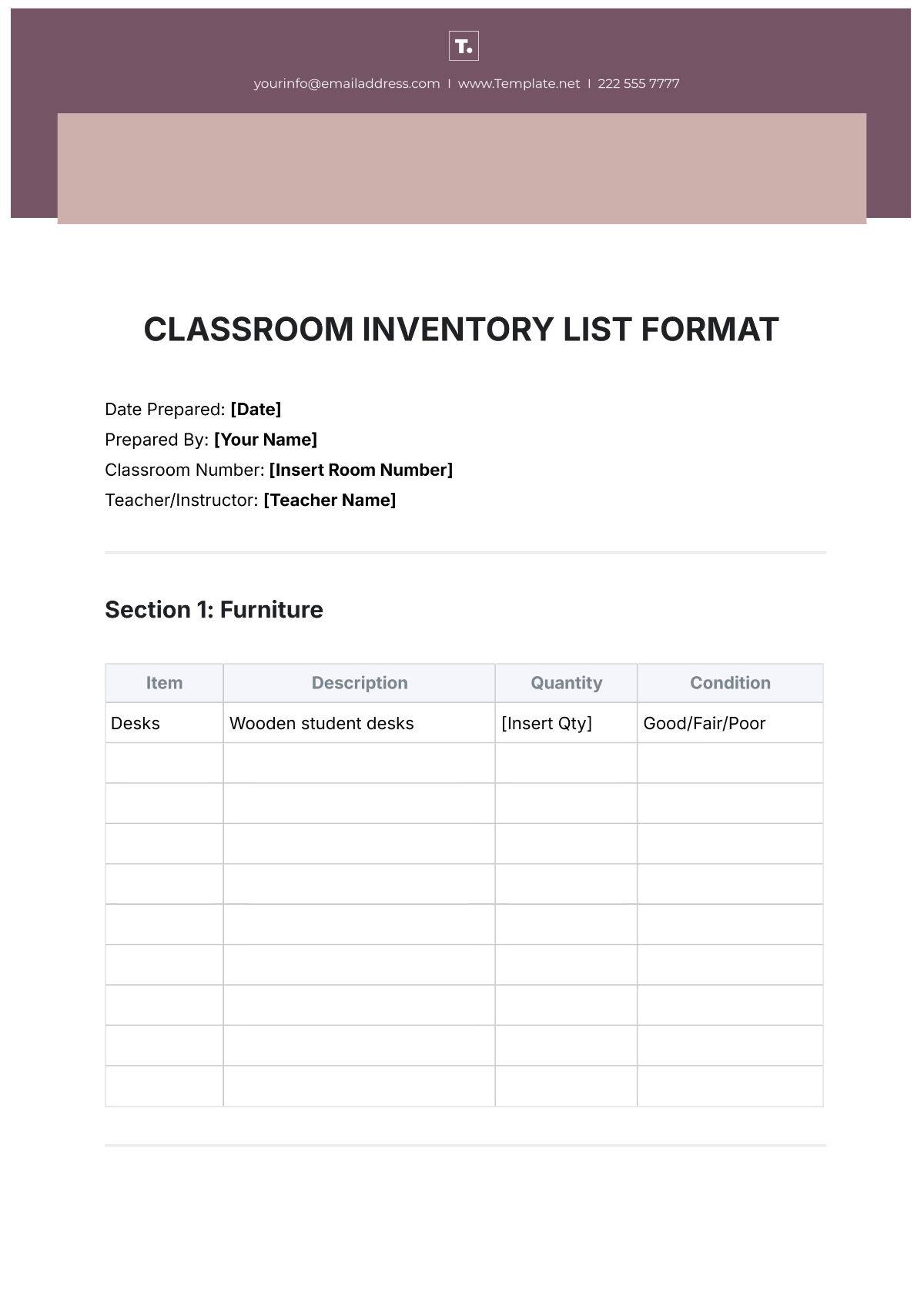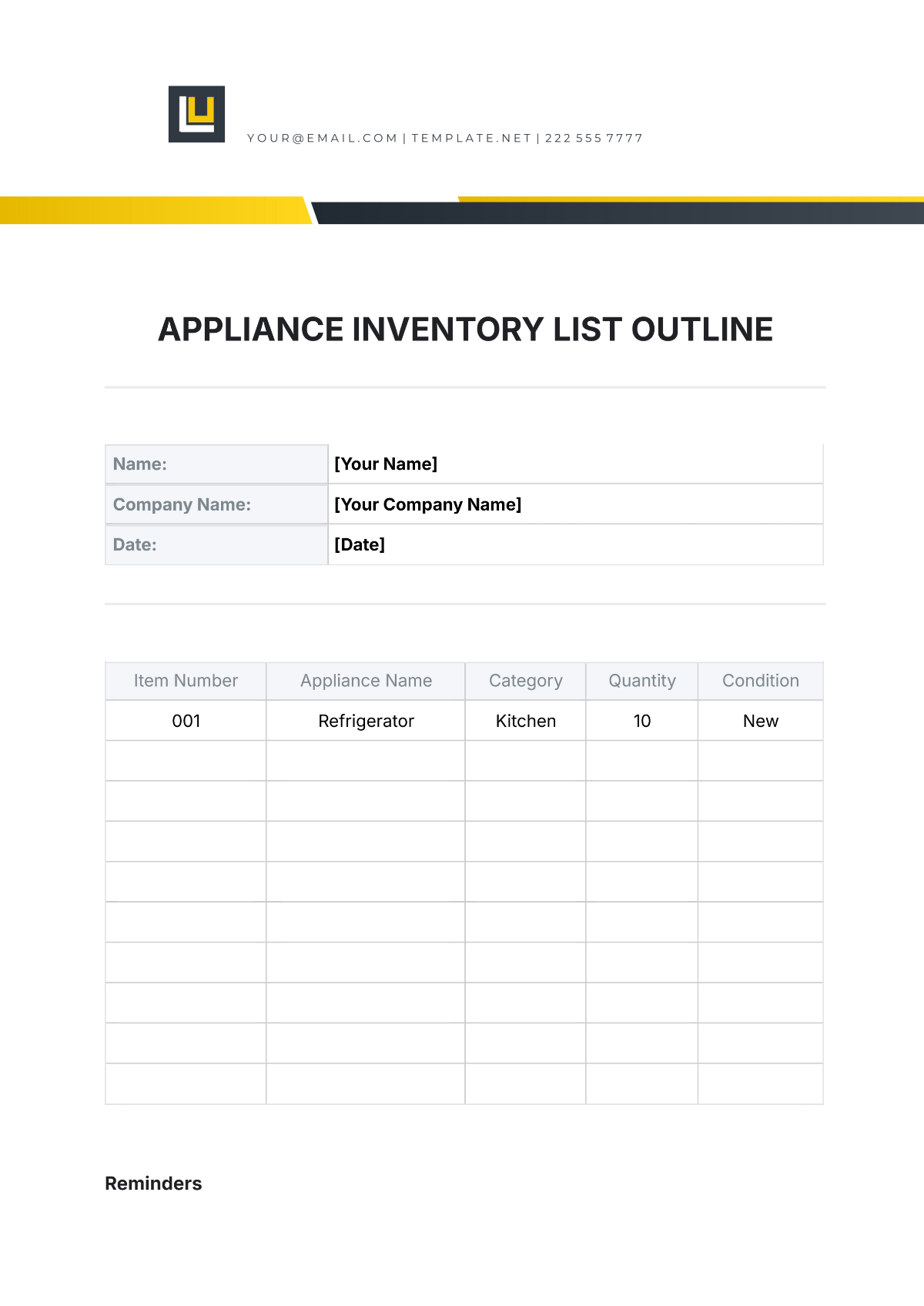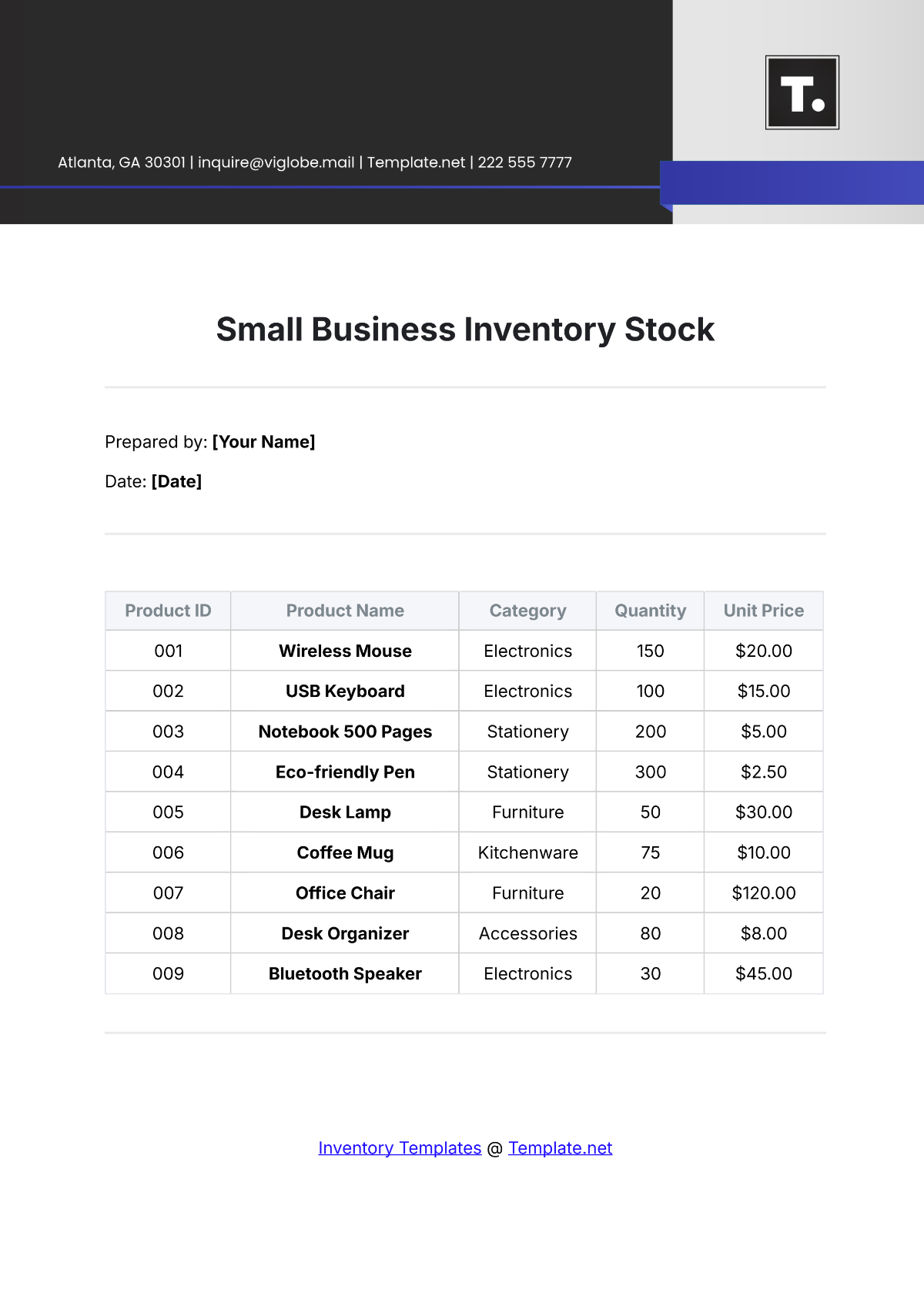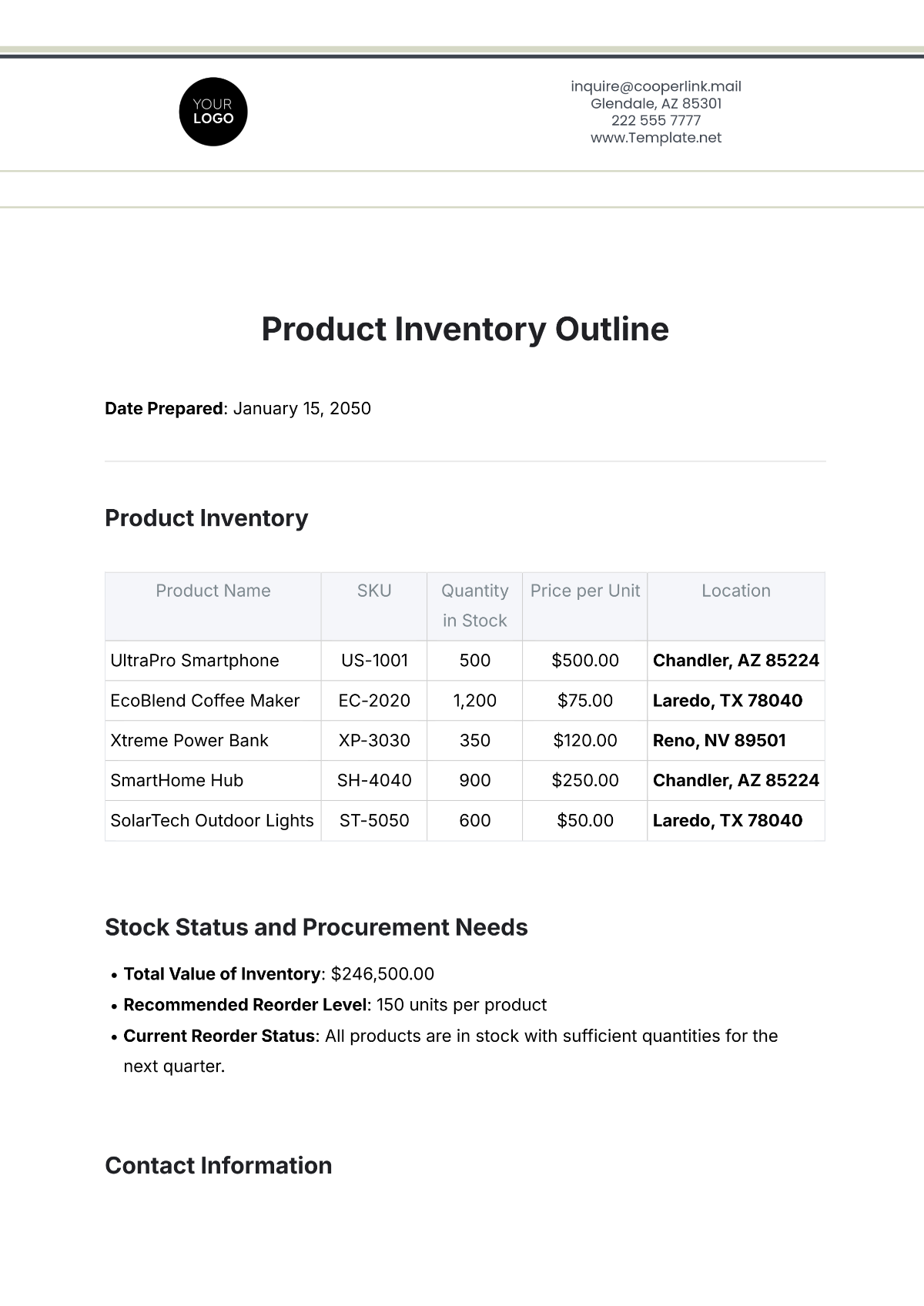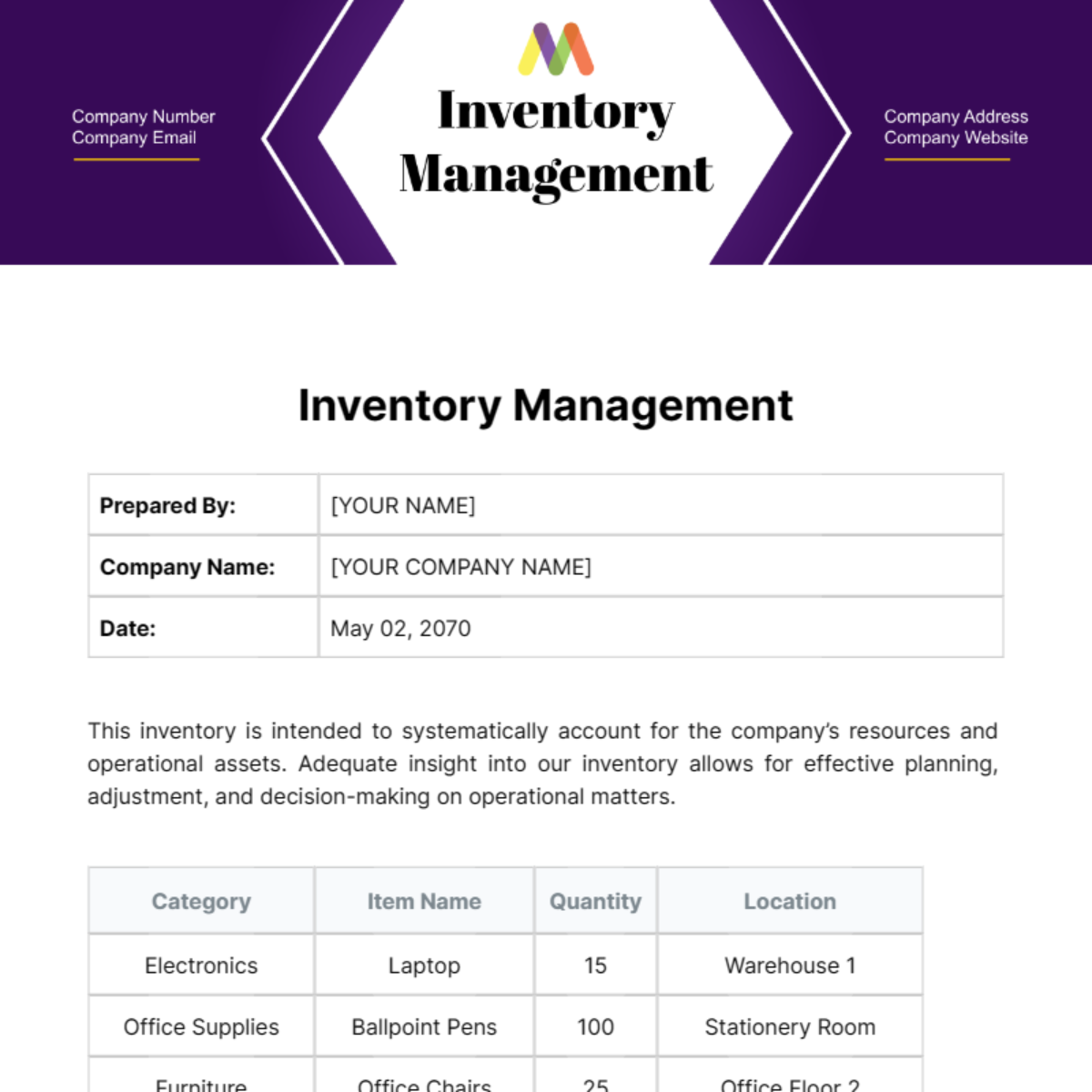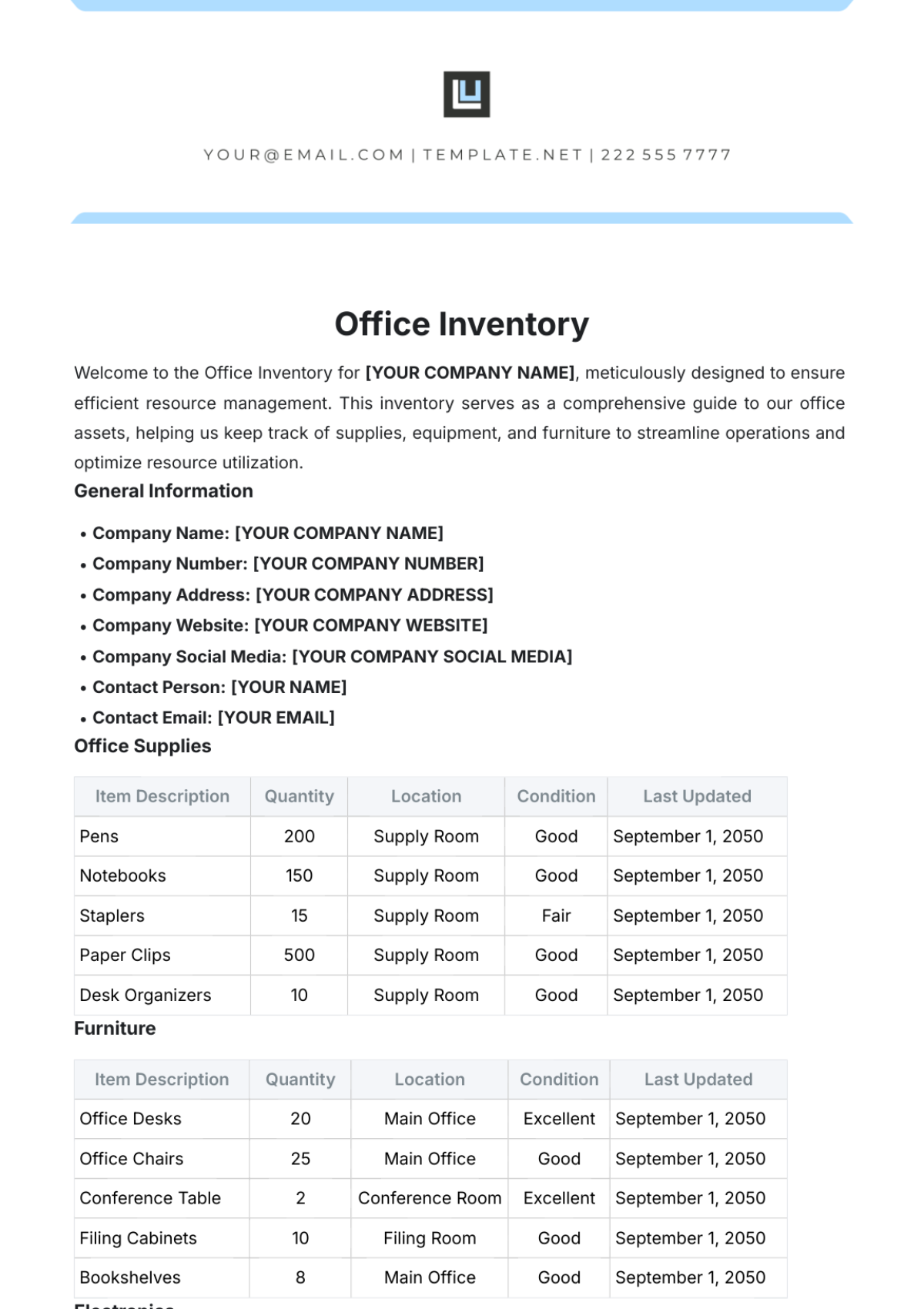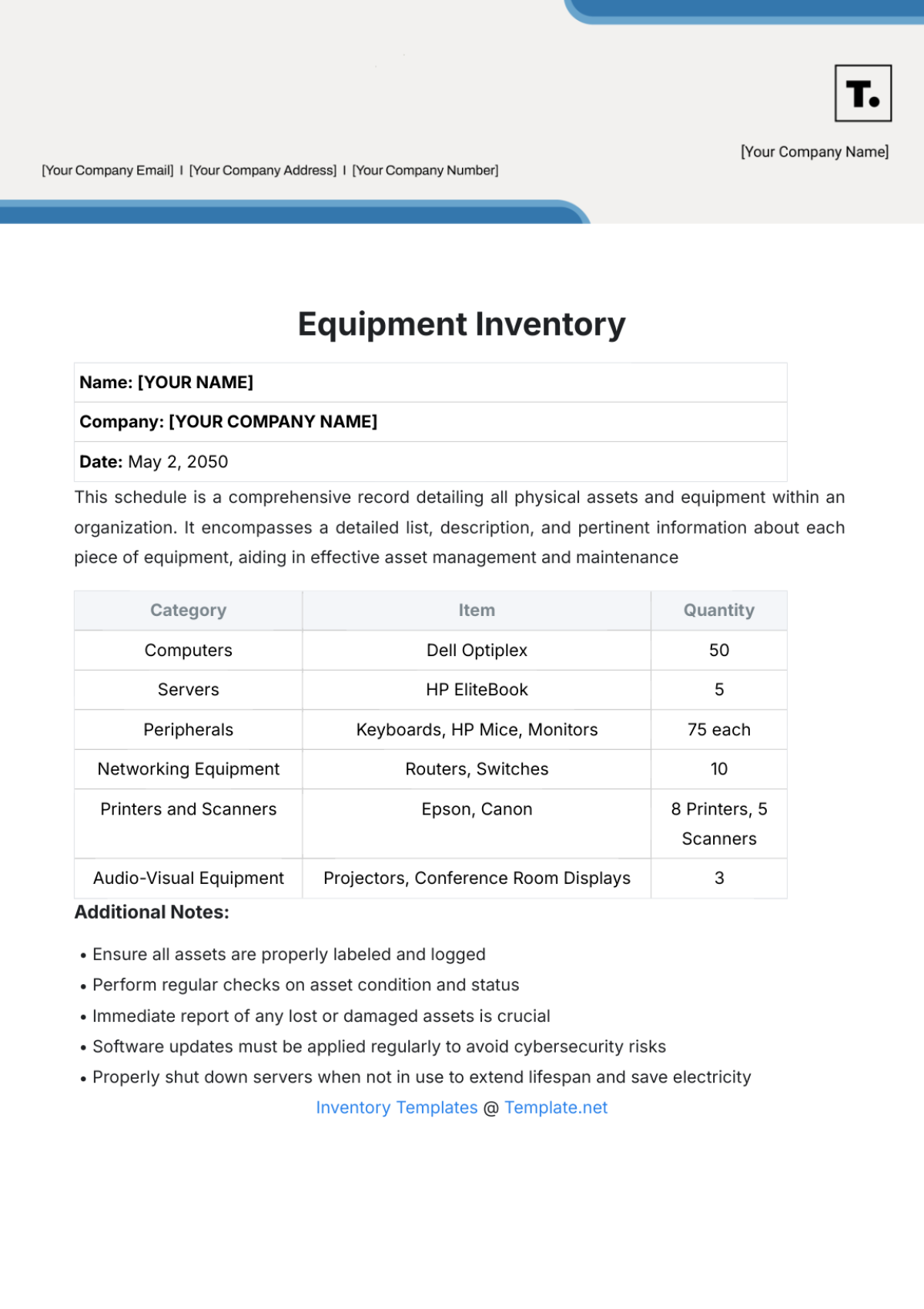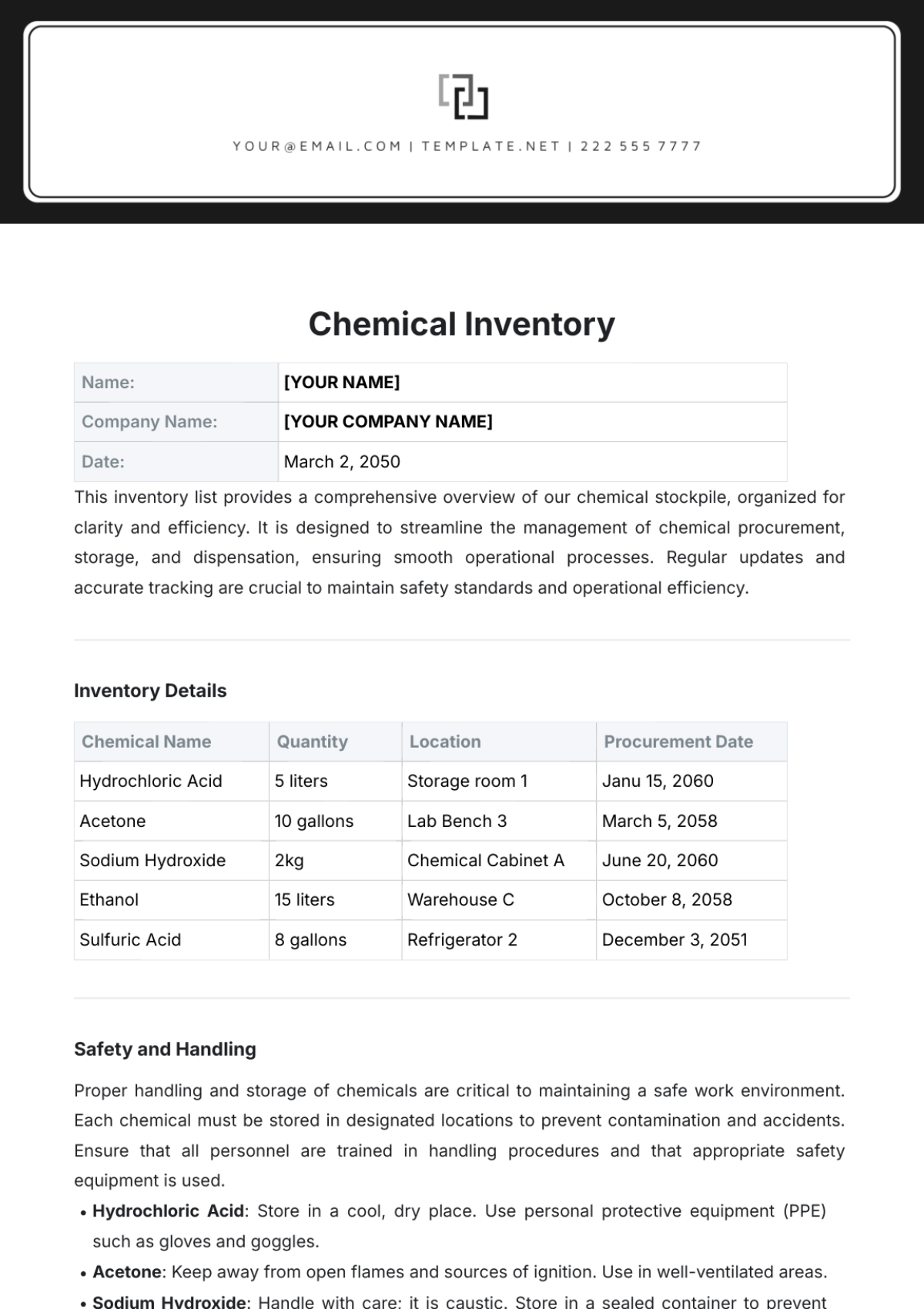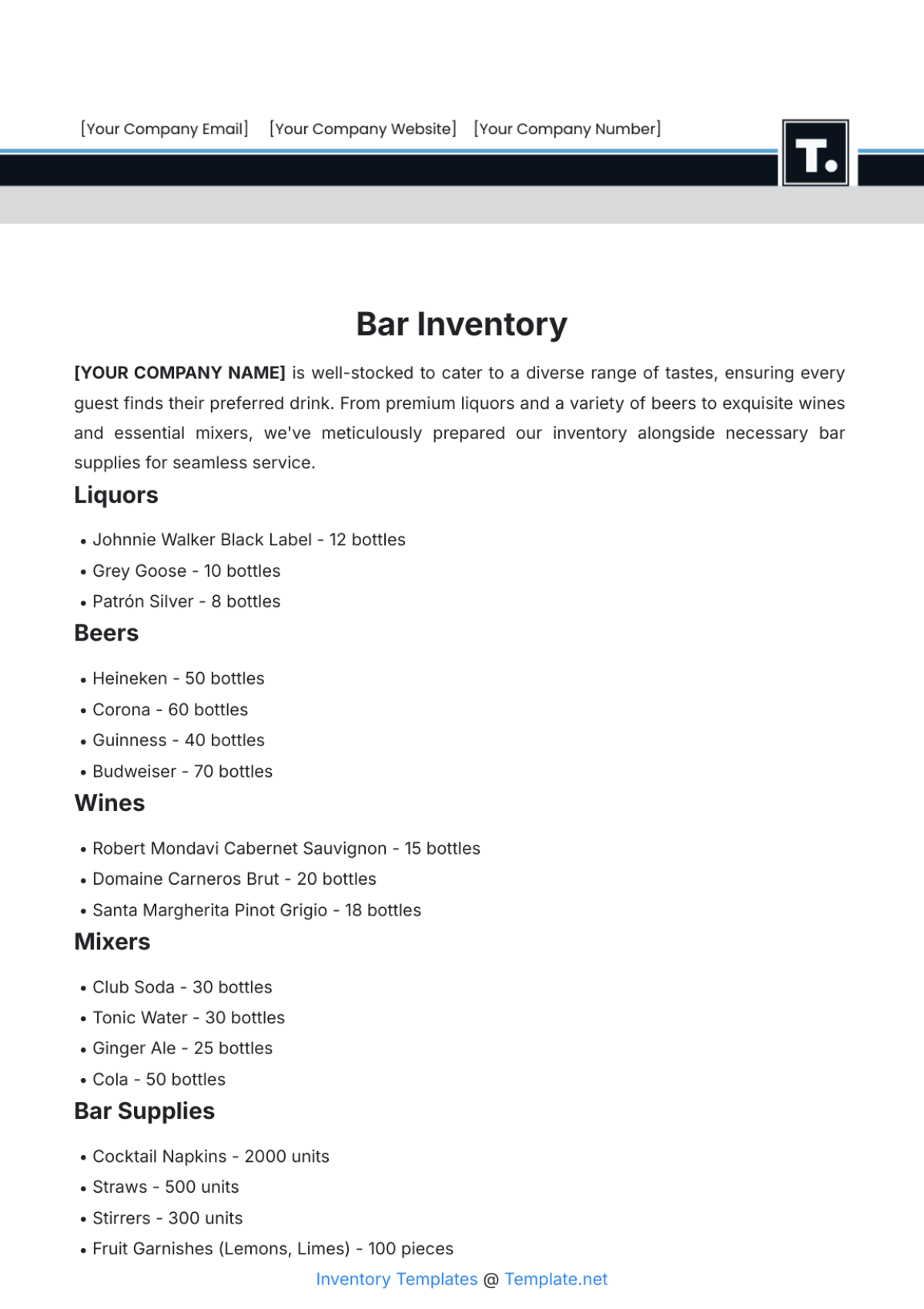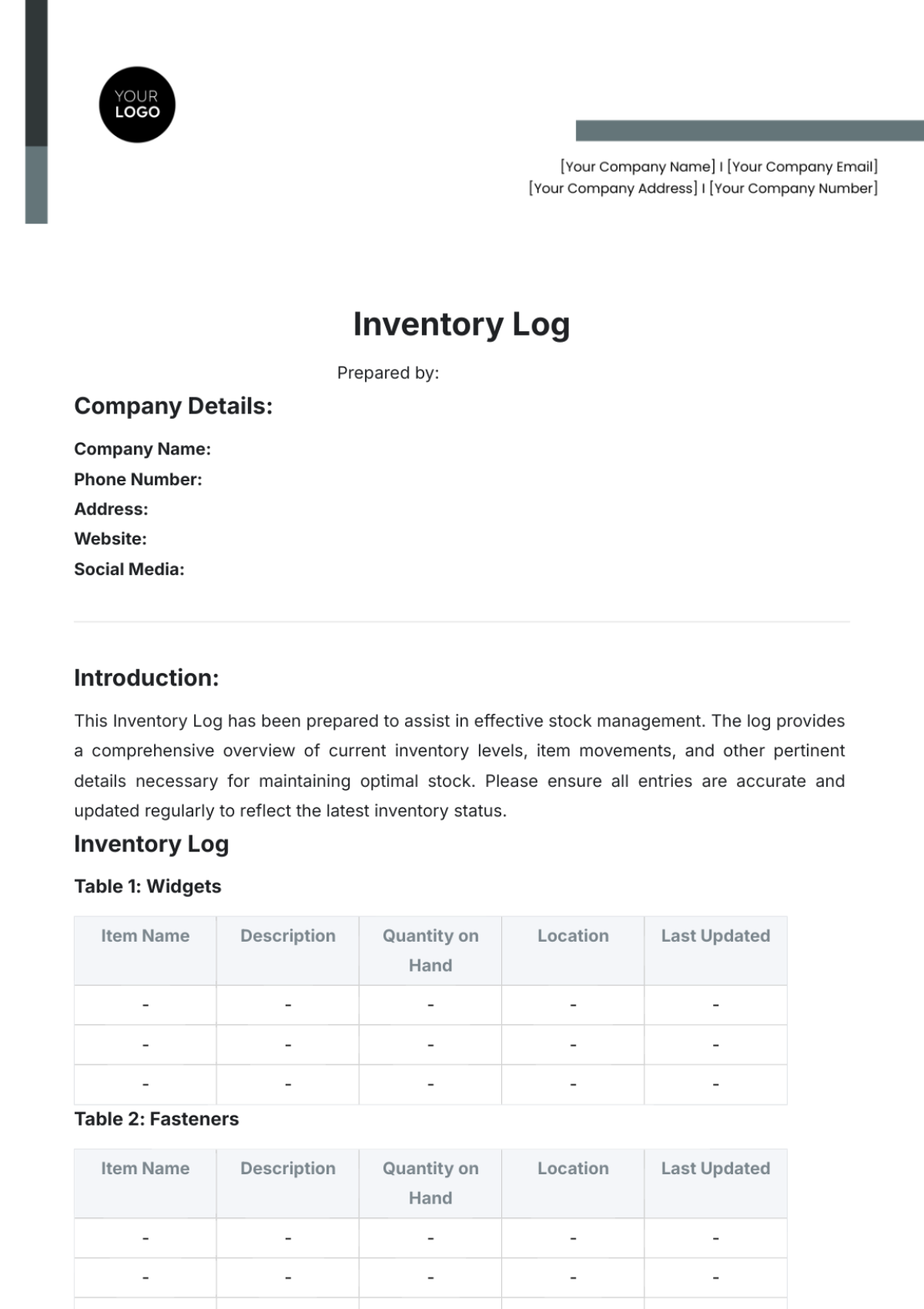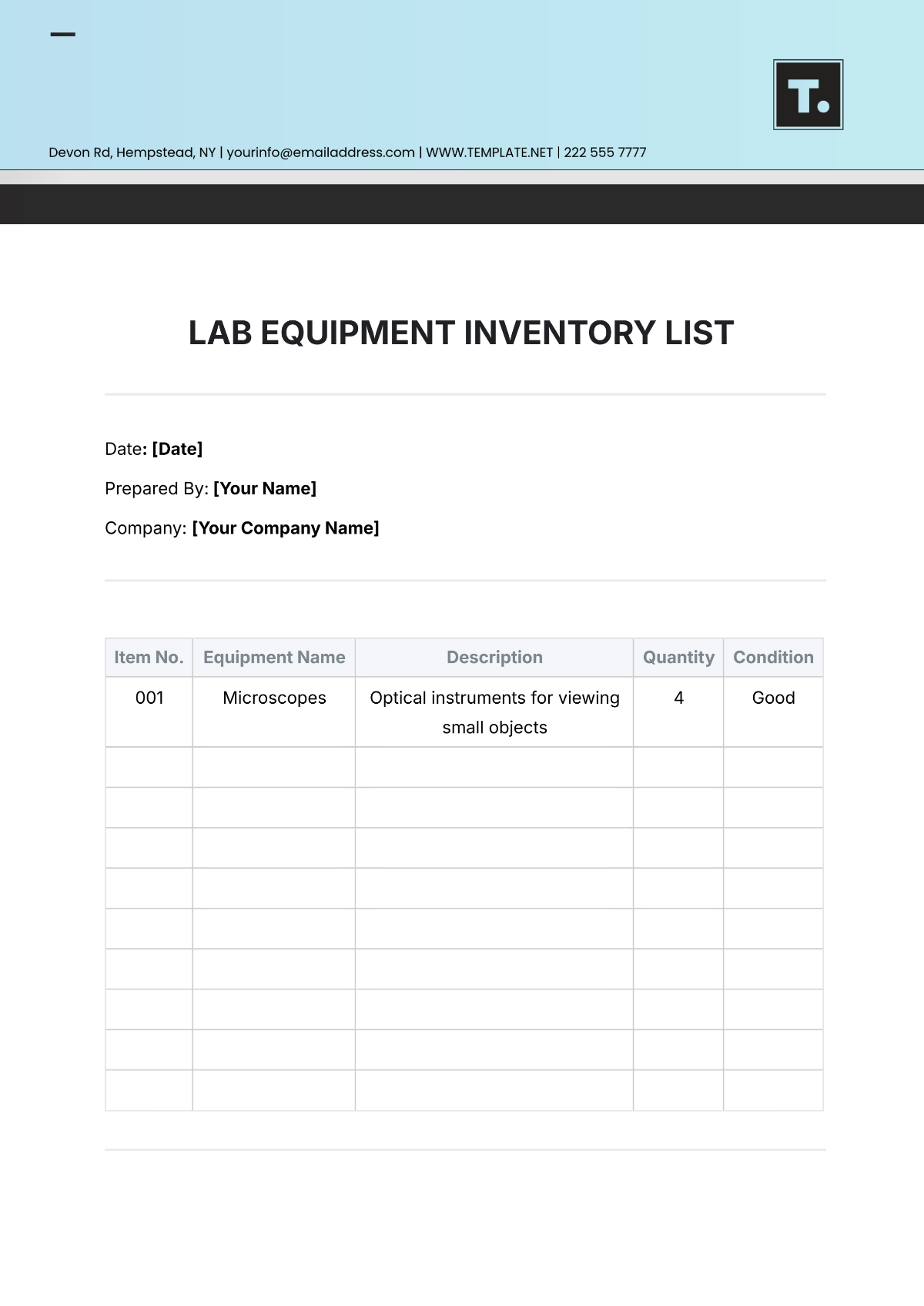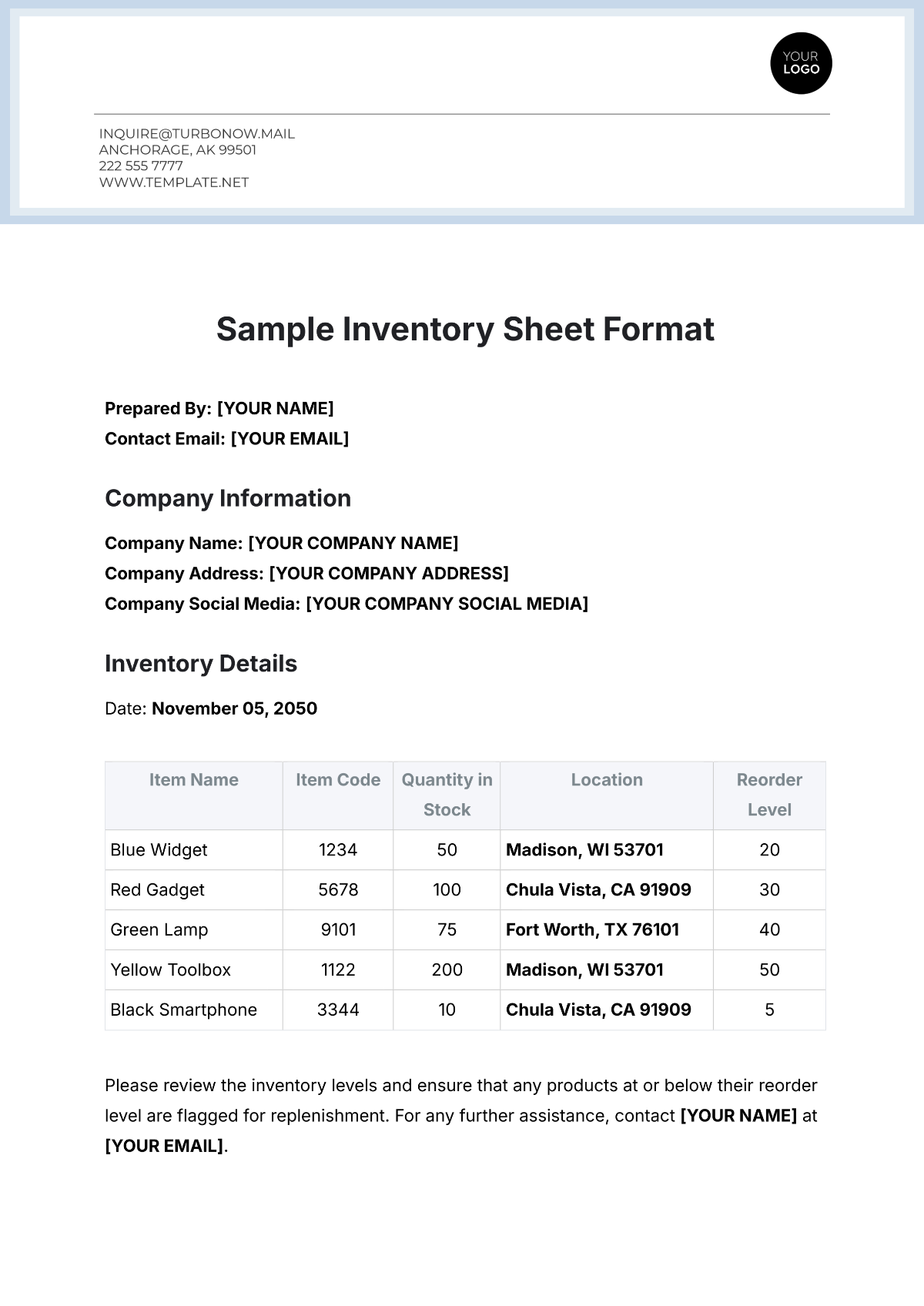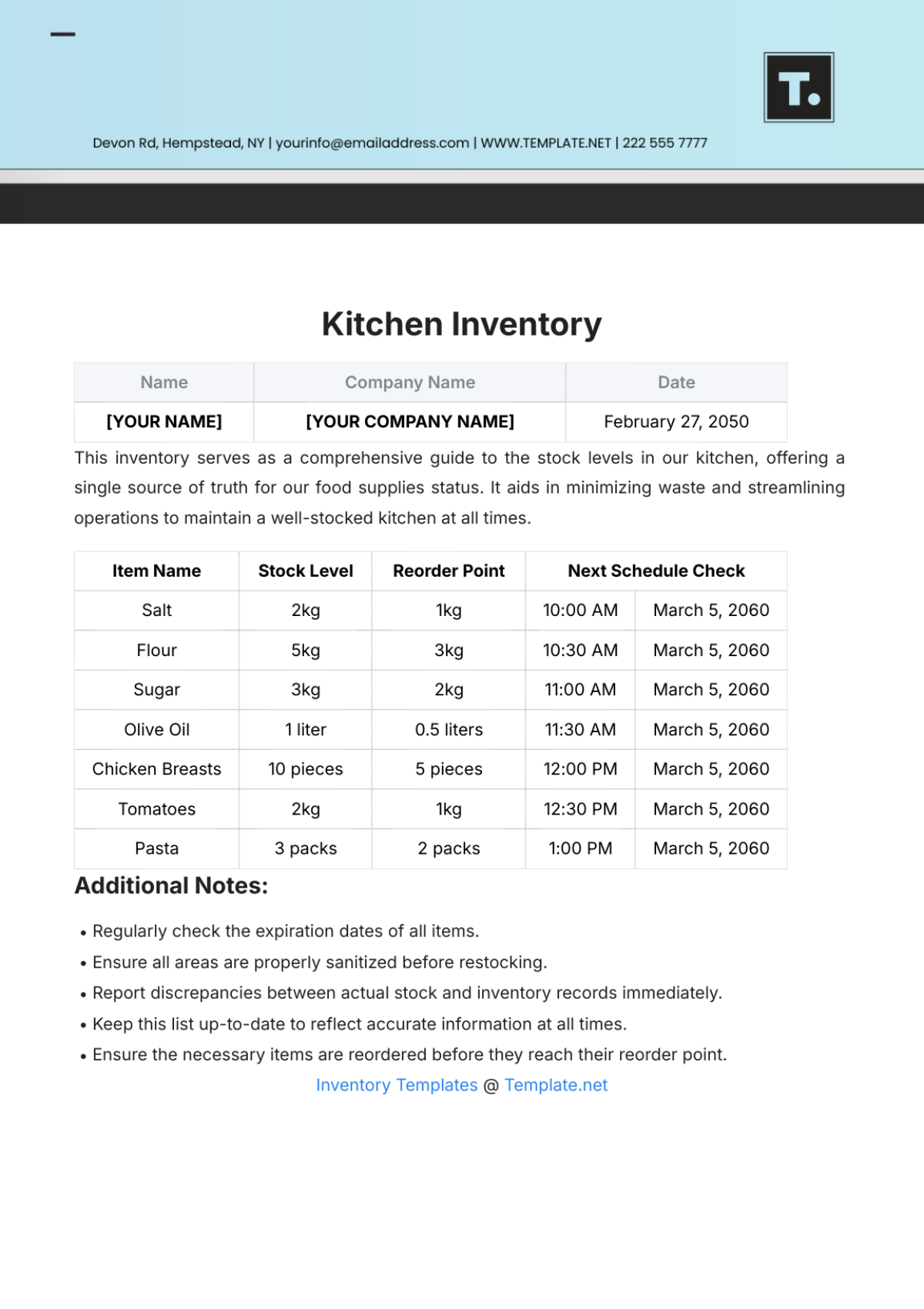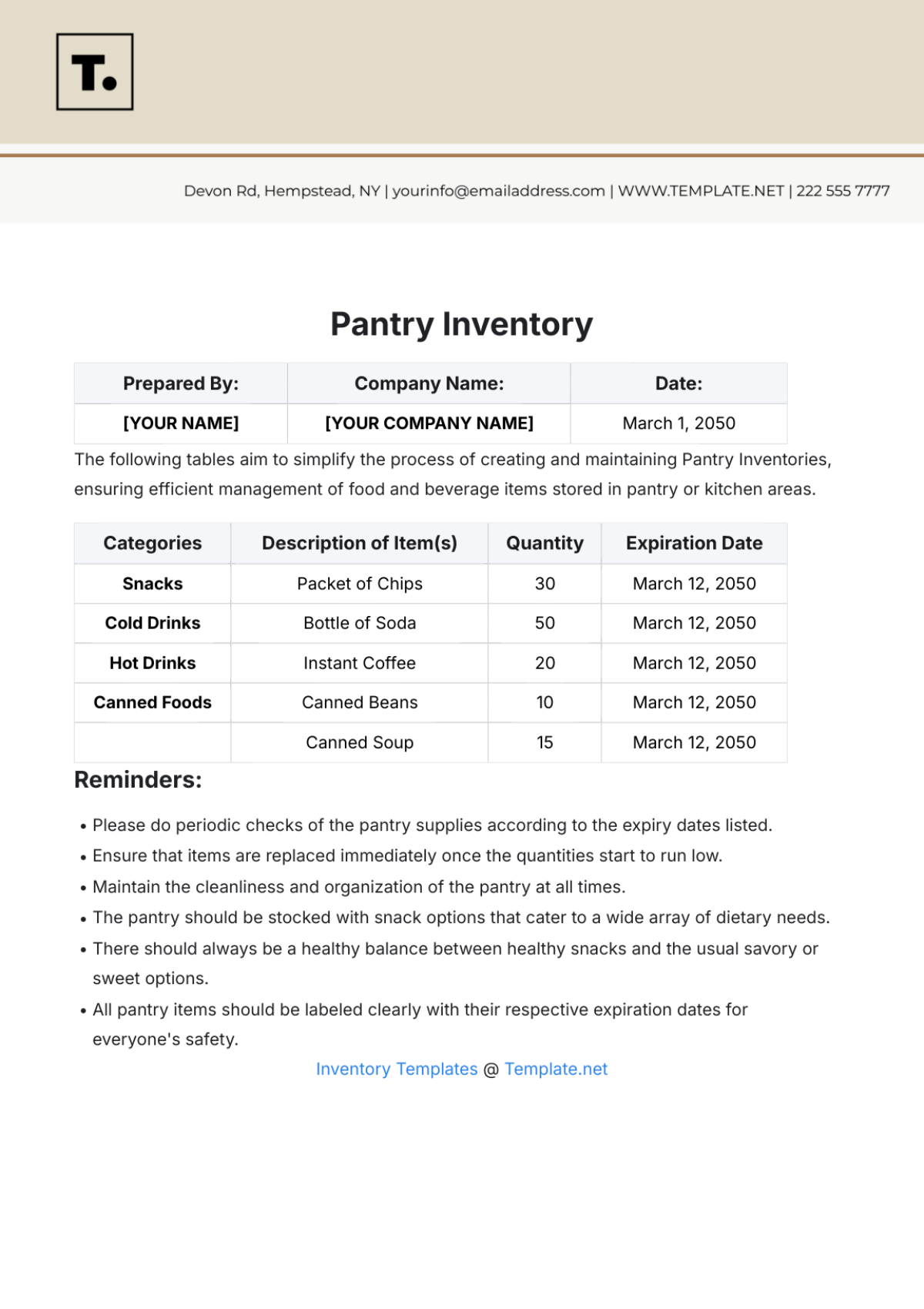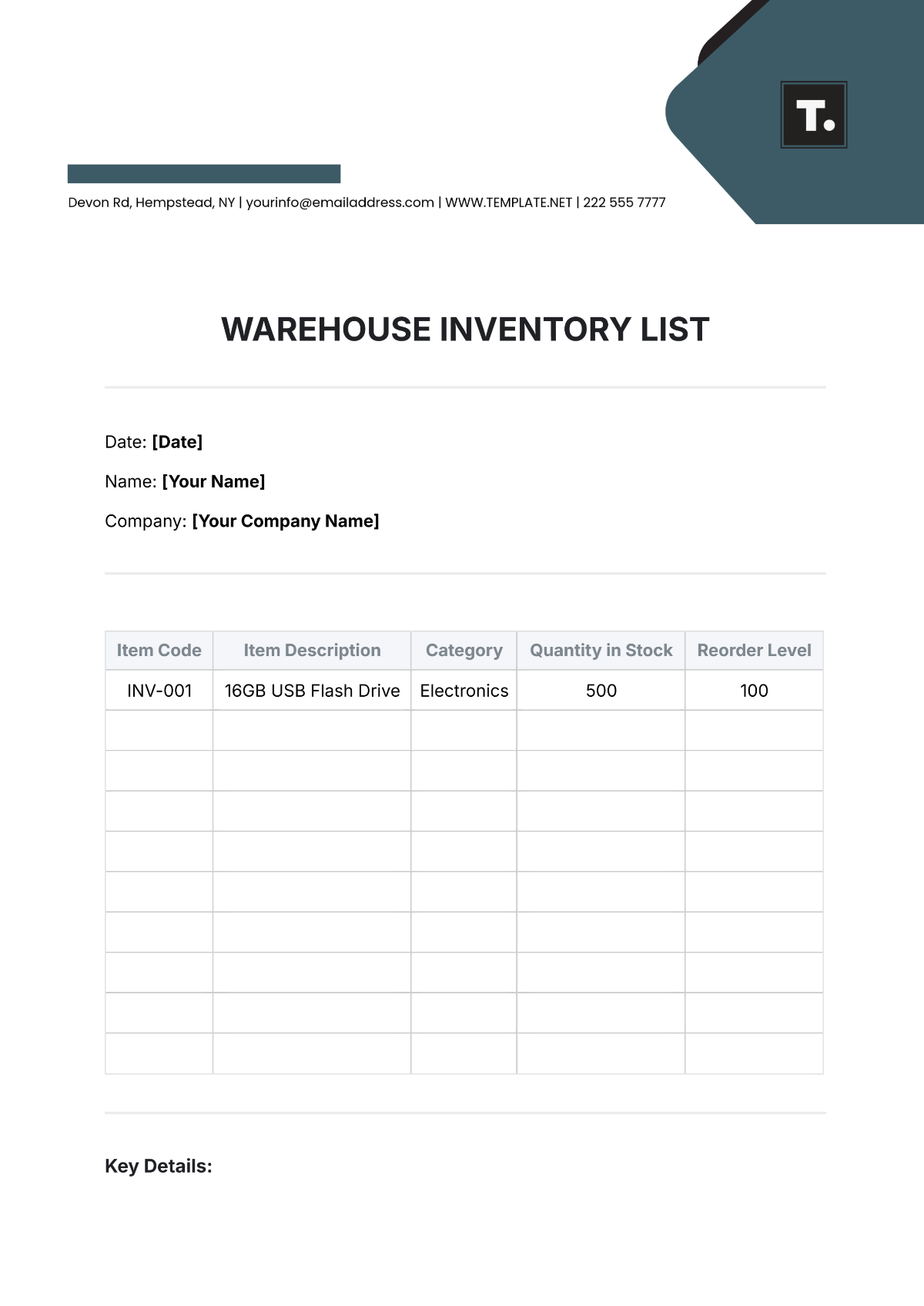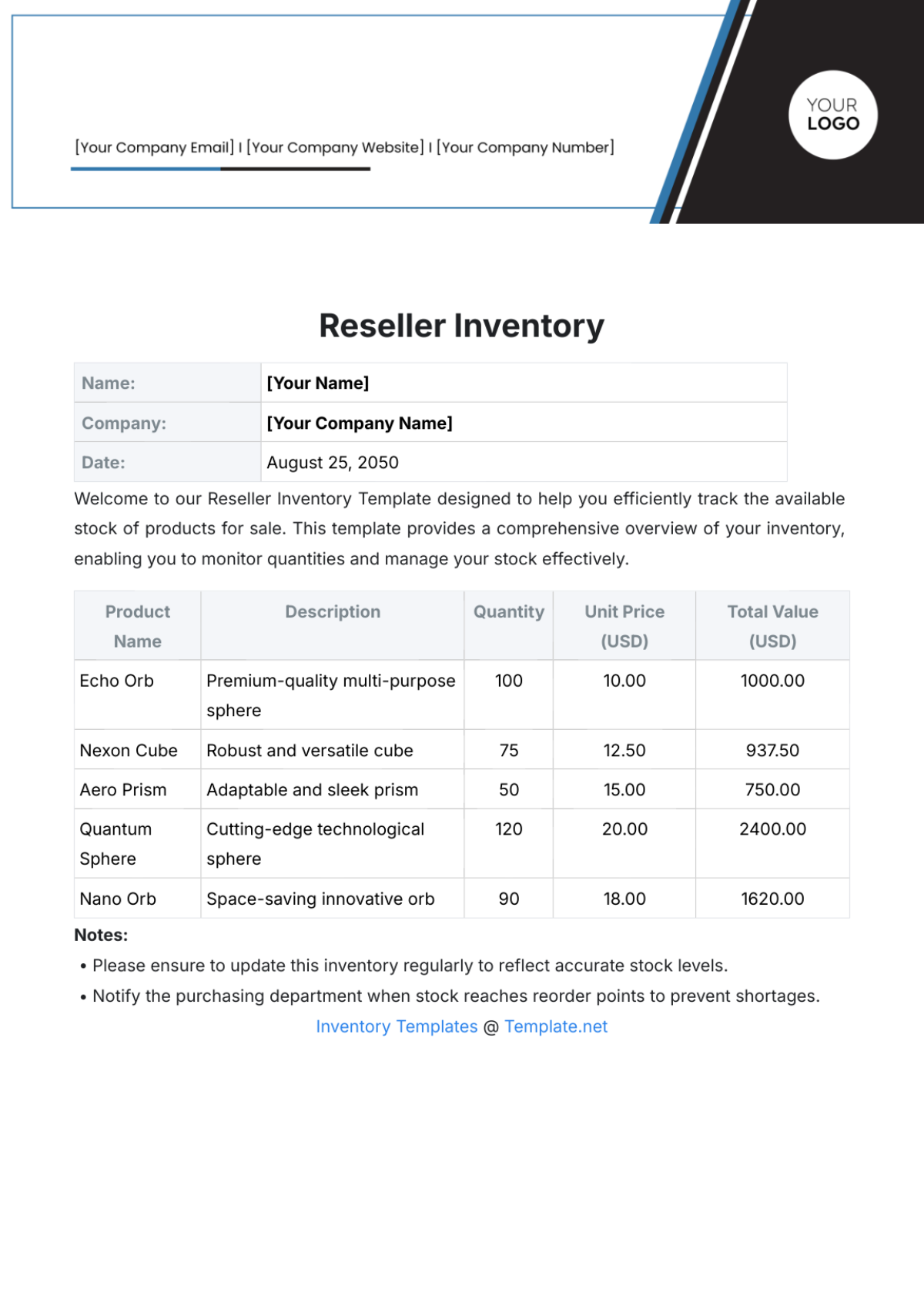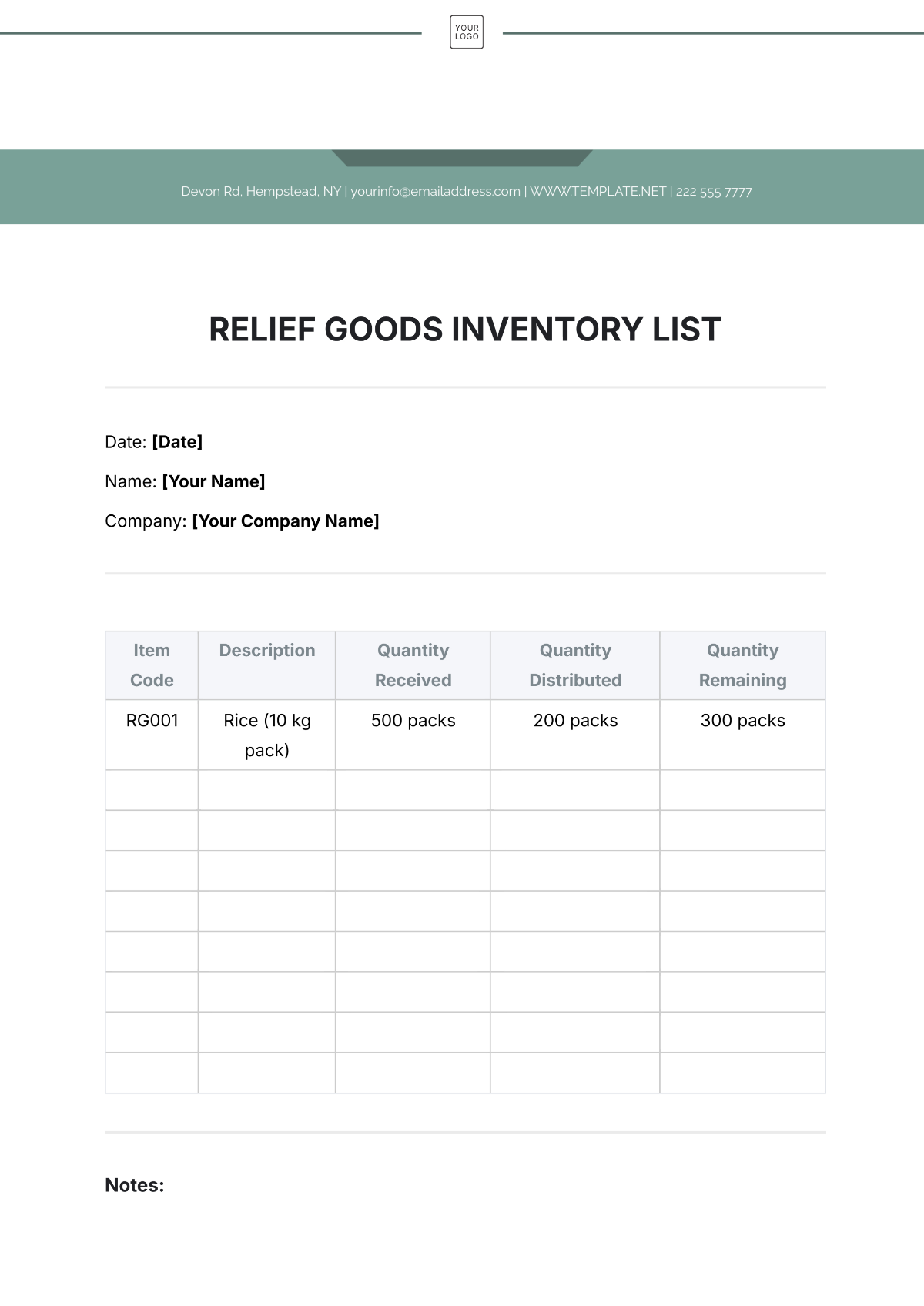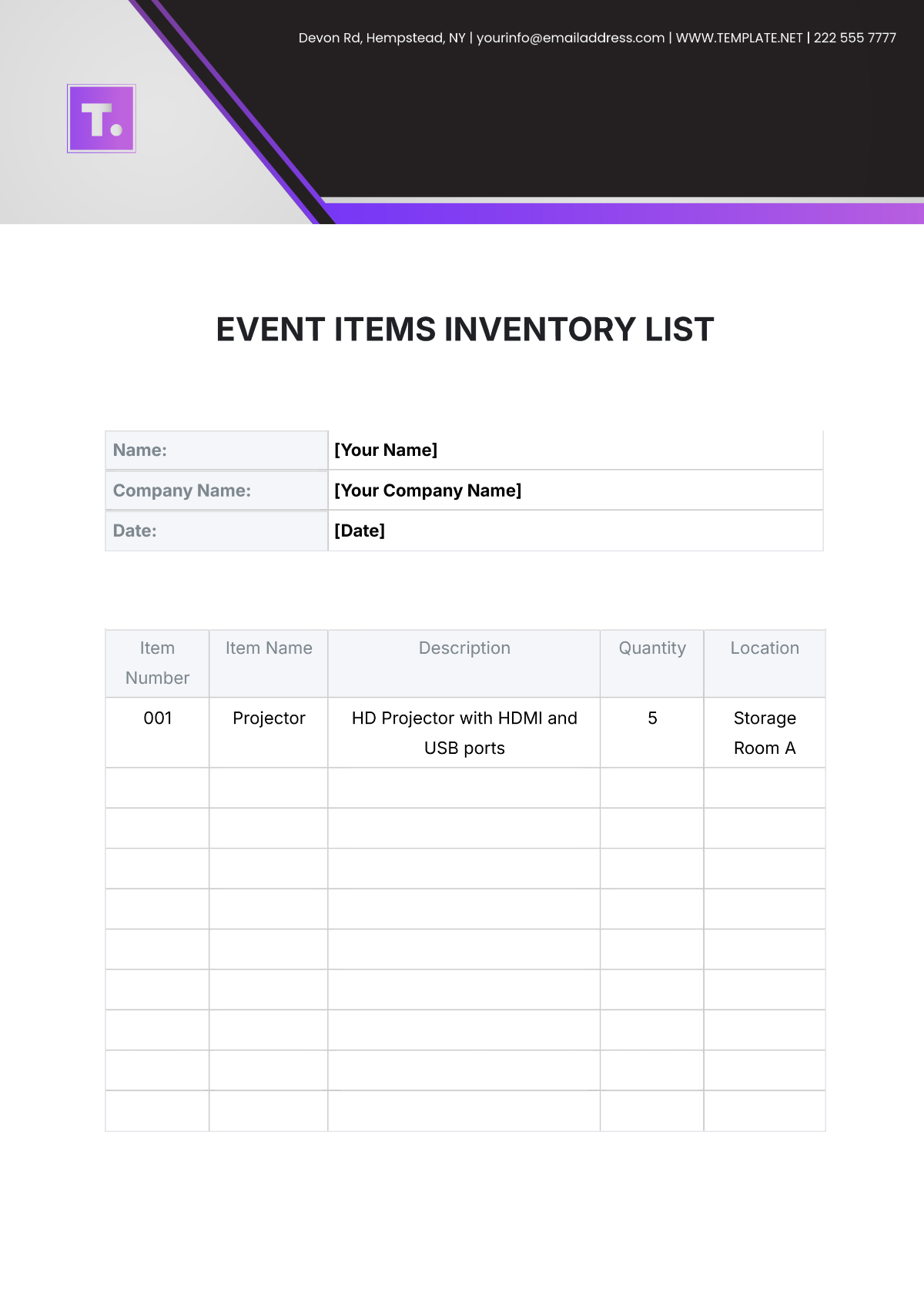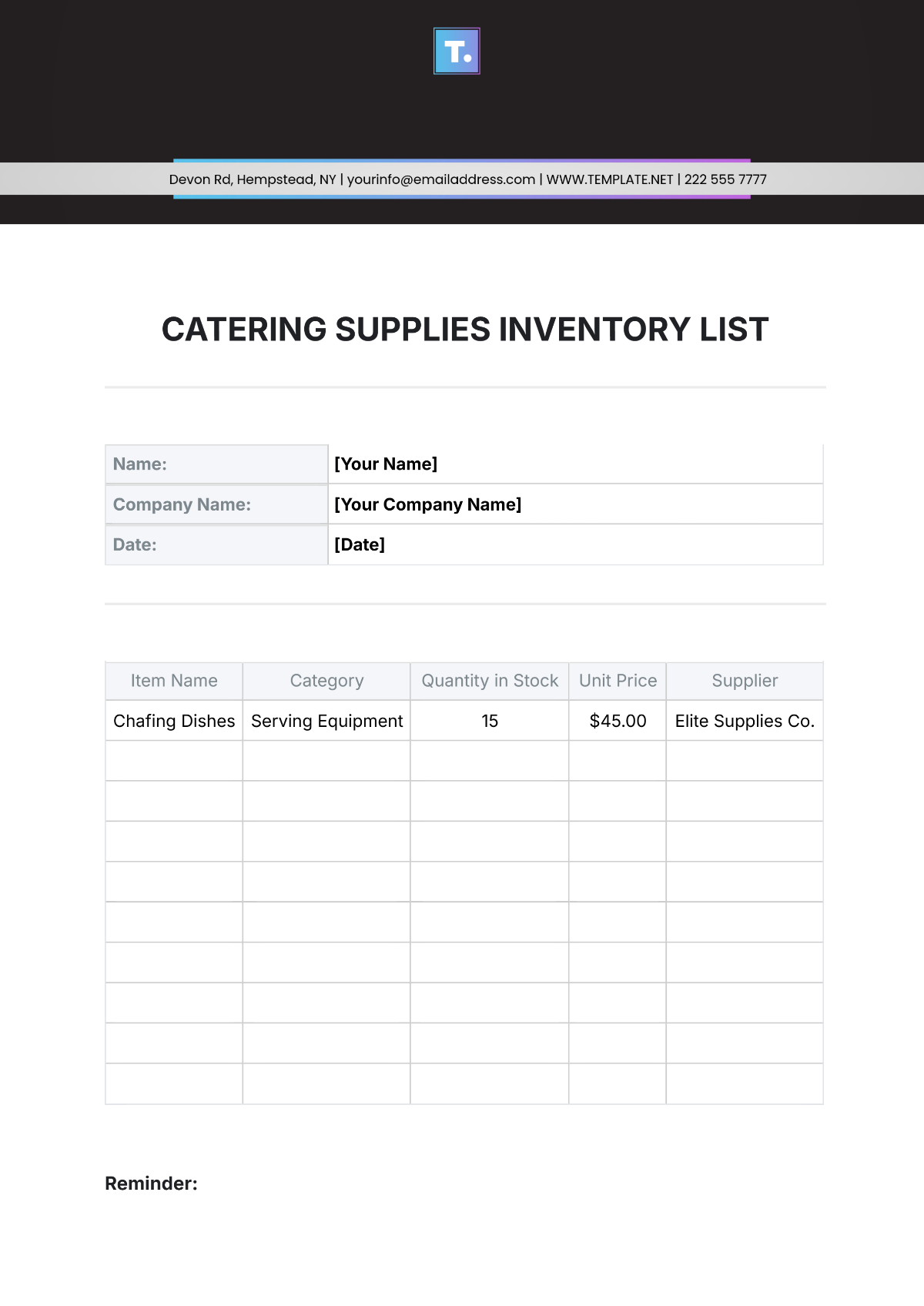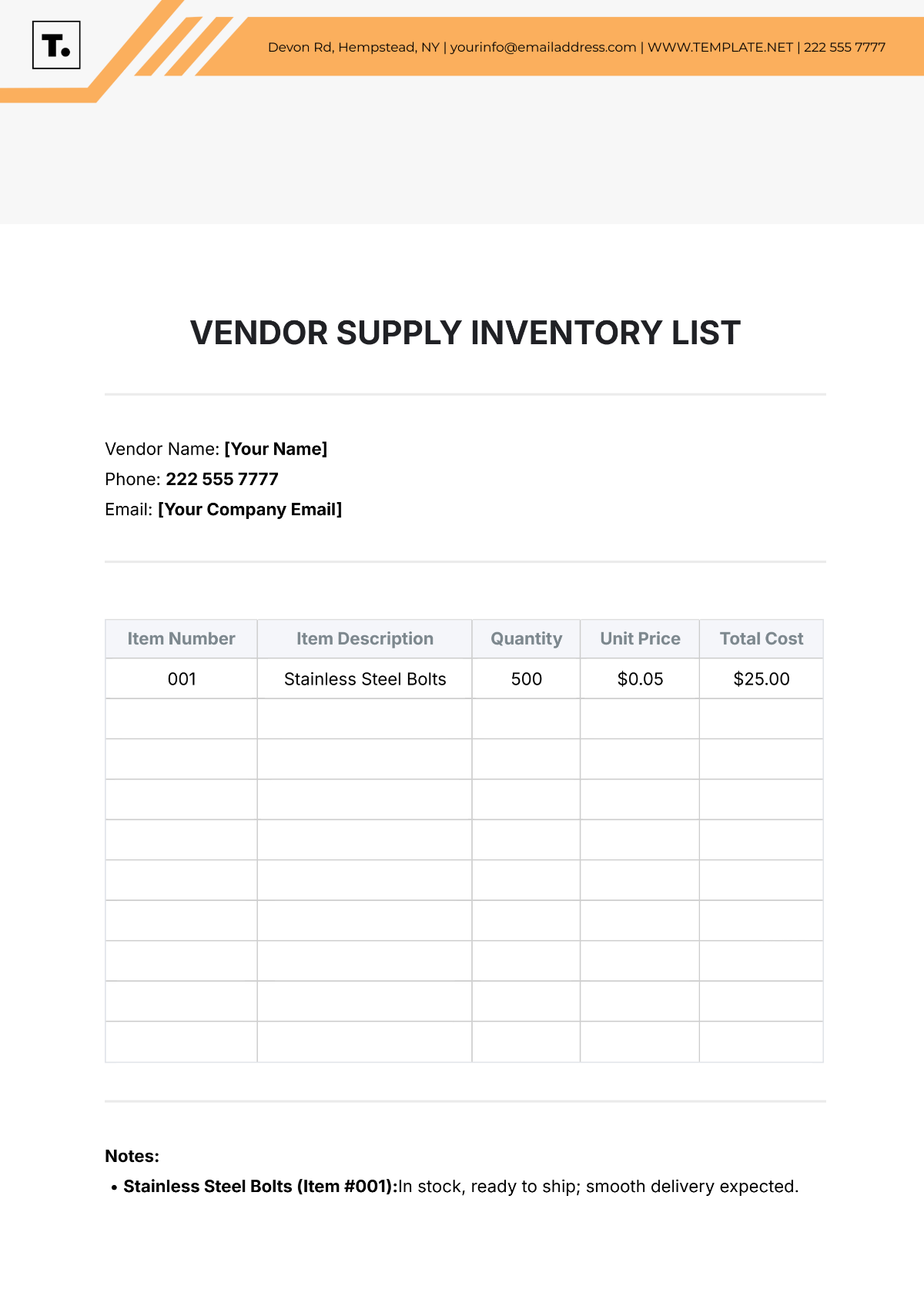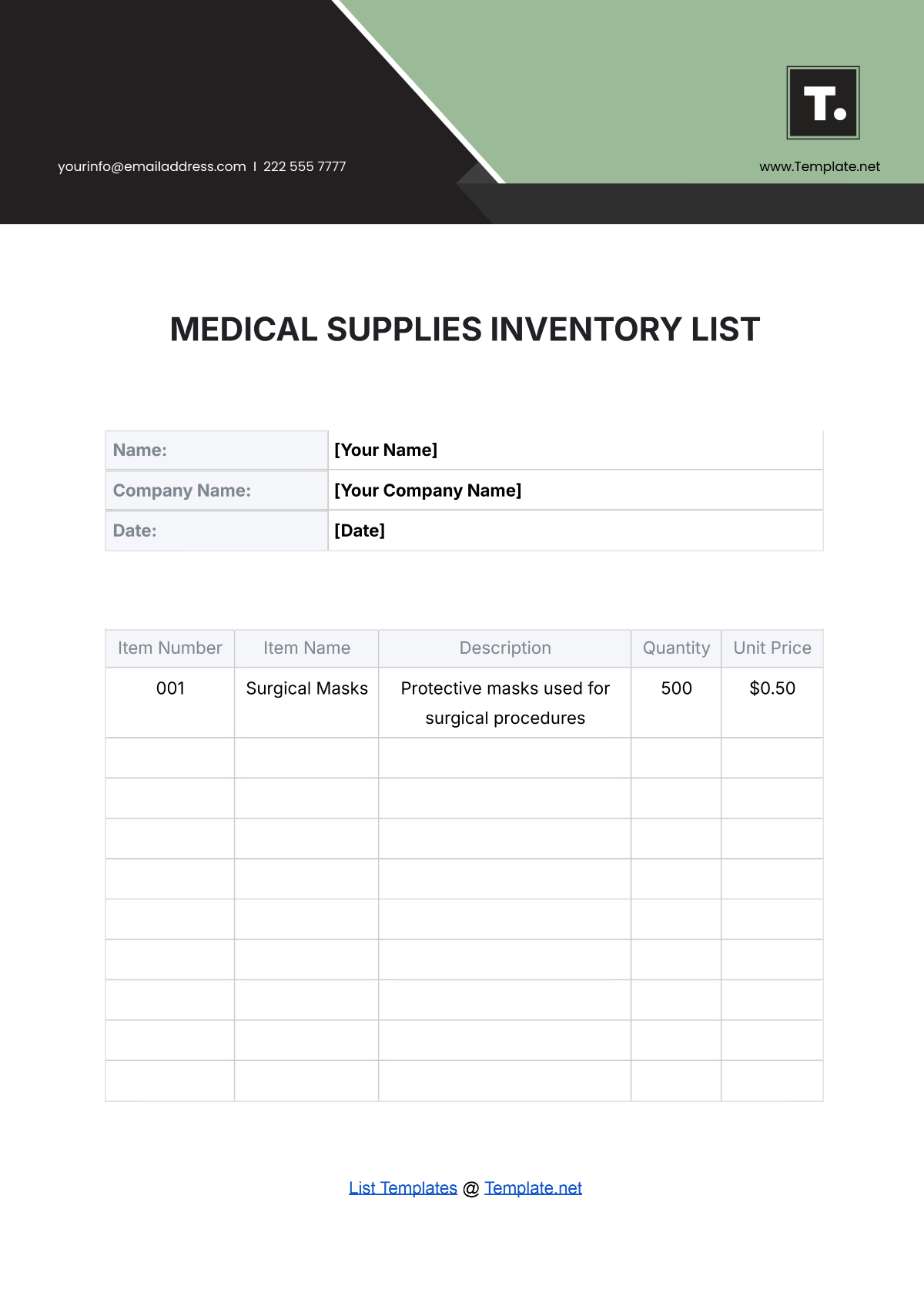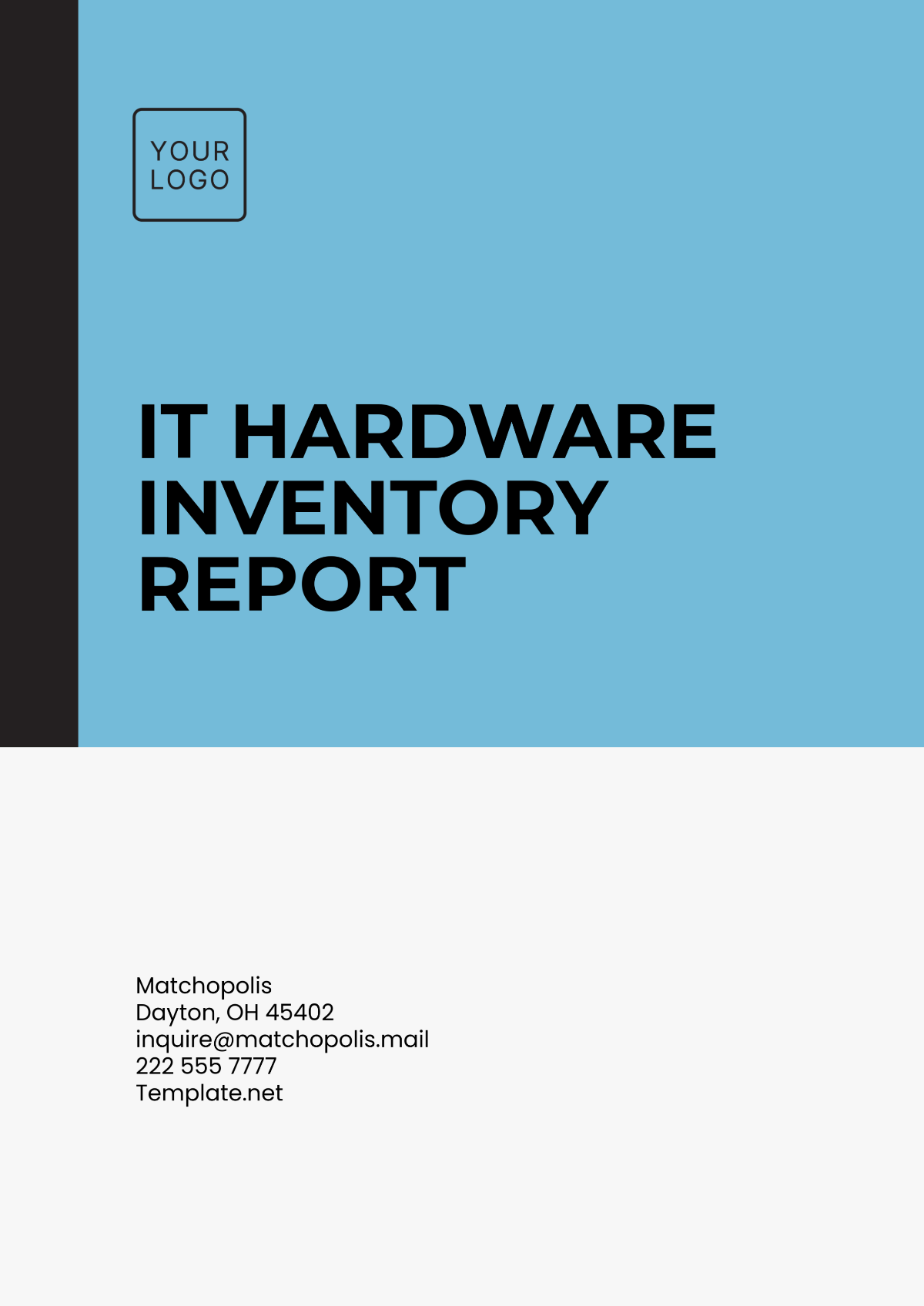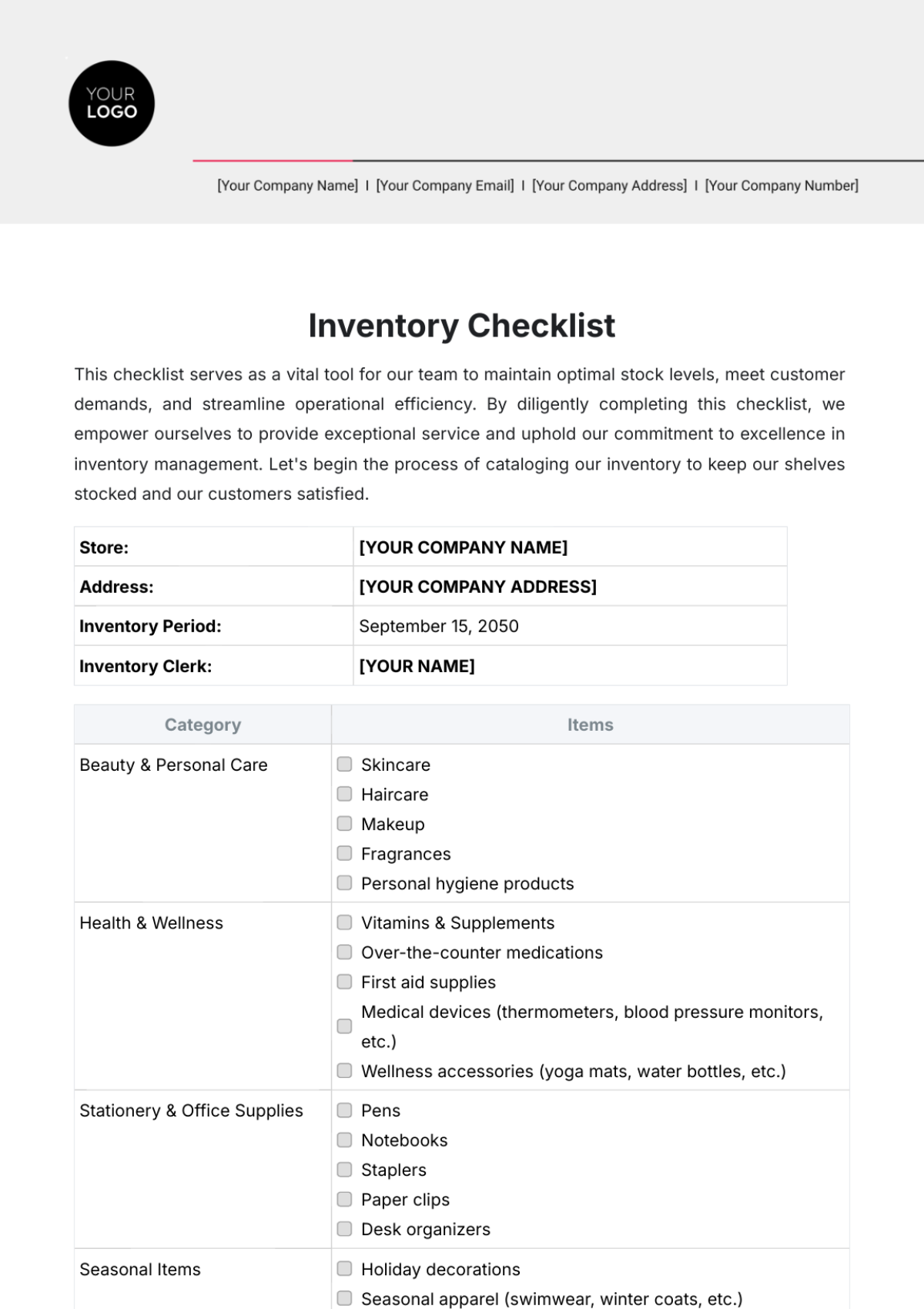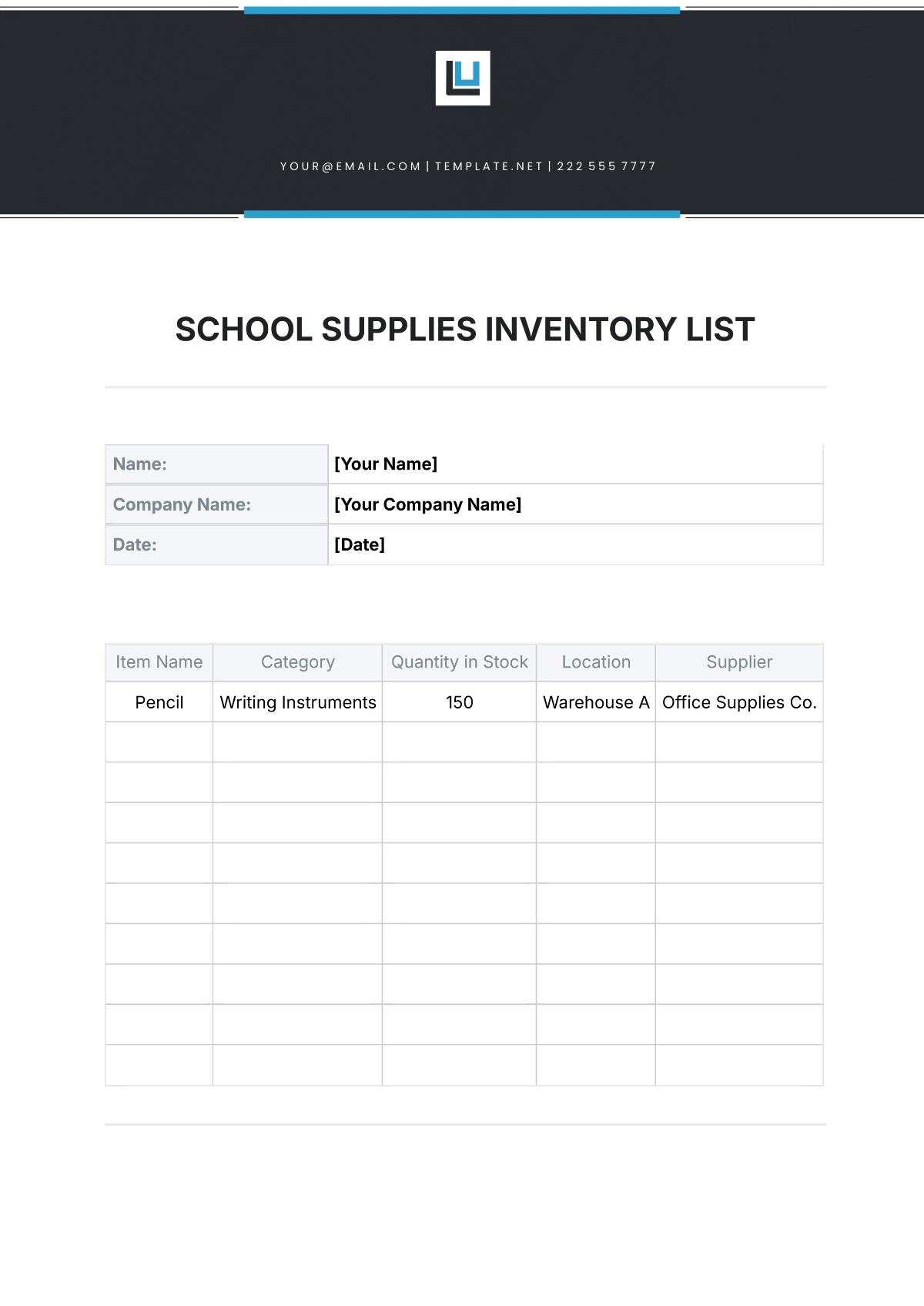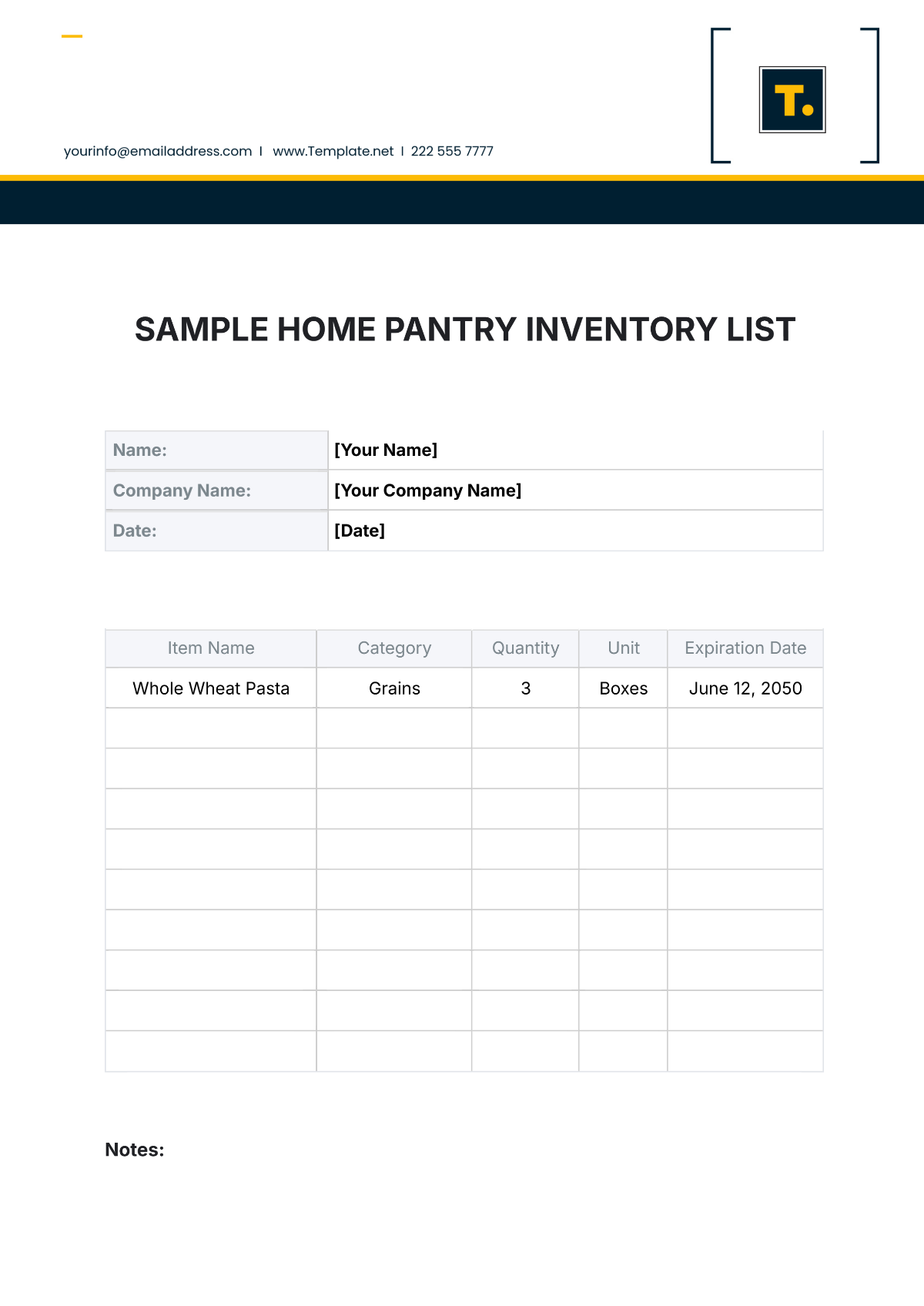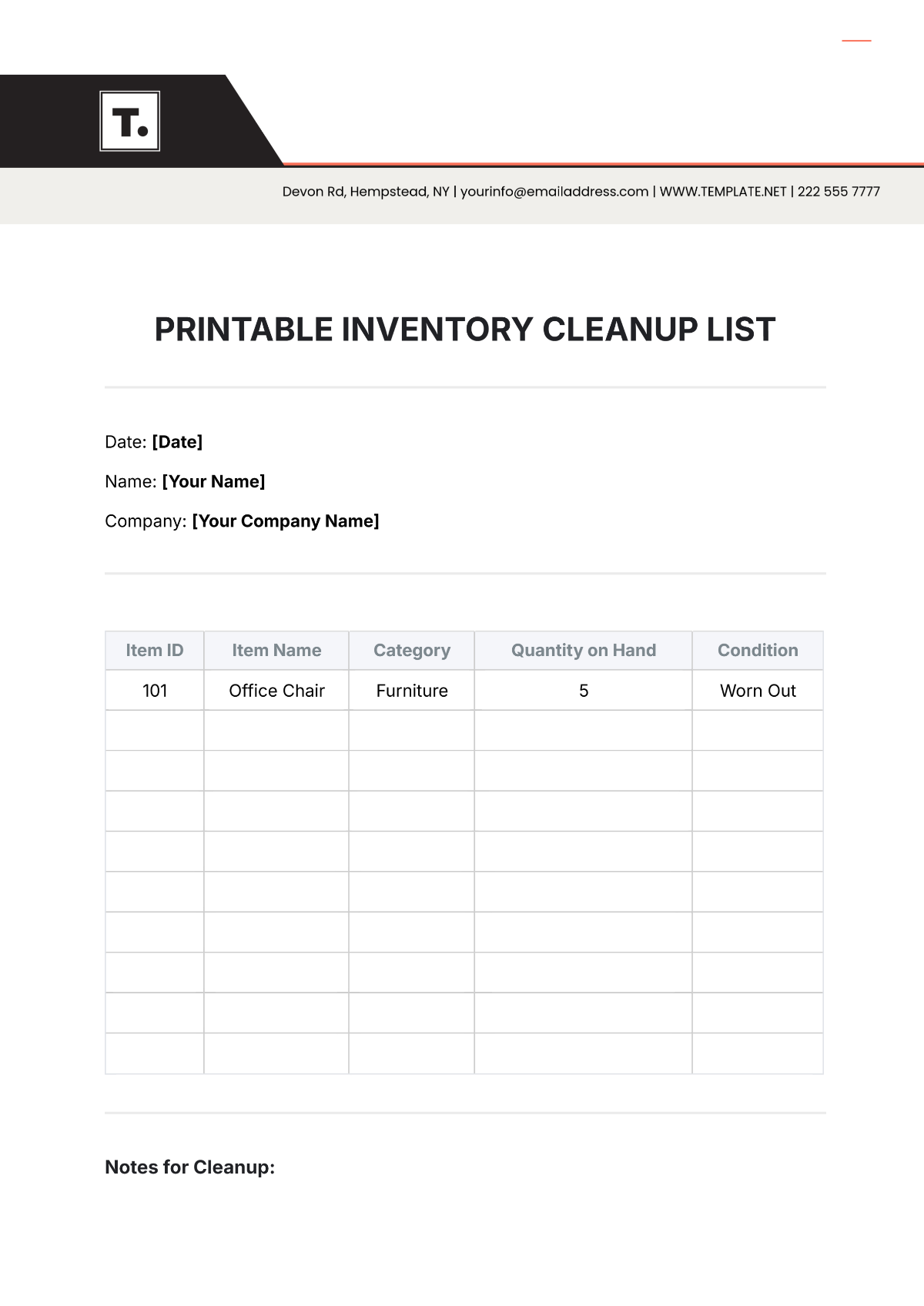Sample Stock Inventory Audit Report
Company: [Your Company Name]
Prepared by: [Your Name]
Report Period: [Date]
I. Introduction
This report provides a comprehensive overview of the stock inventory audit conducted for [Your Company Name]. The primary objective of this audit was to assess the accuracy of the inventory records, identify discrepancies, and suggest improvements to inventory management processes. The audit was performed over one month, examining various aspects of inventory control, storage, and documentation.
II. Audit Objectives
The audit was conducted with the following objectives in mind:
Verify the accuracy of inventory records.
Assess the effectiveness of current inventory management practices.
Identify discrepancies between physical inventory and recorded data.
Recommend improvements to reduce discrepancies and improve efficiency.
III. Methodology
The audit methodology involved a series of steps designed to thoroughly examine inventory records and physical stock levels. These steps included:
Review of inventory management policies and procedures.
Random sampling of stock items for physical counting.
Comparison of physical counts with recorded inventory data.
Analysis of discrepancies to identify patterns or systematic issues.
Interviews with staff responsible for inventory management.
IV. Findings
A. Inventory Record Accuracy
Upon review, the audit found that the overall accuracy of the inventory records was 92%. Discrepancies were identified primarily in the categories of electronics and small parts. The table below summarizes the findings:
Category | Sample Size | Discrepancy Percentage |
|---|---|---|
Electronics | 150 | 12% |
Small Parts | 200 | 15% |
Stationery | 100 | 5% |
Furniture | 50 | 2% |
B. Discrepancy Analysis
The audit identified several reasons for discrepancies, including:
Lack of regular inventory audits and checks.
Human errors during manual data entry.
Inadequate staff training on inventory systems.
Issues in the replenishment process lead to overstock or stockouts.
V. Recommendations
Based on the findings, the following recommendations have been proposed to enhance inventory management:
Implement regular training sessions for staff on using inventory management software effectively.
Establish routine inventory audits to promptly identify and correct discrepancies.
Automate data entry processes to minimize human error.
Review replenishment strategies to improve alignment with actual sales and usage.
Consider upgrading inventory management systems for better tracking and reporting.
VI. Conclusion
The stock inventory audit provided valuable insights into the current state of inventory management within [Your Company Name]. While the overall accuracy rate is relatively high, there is room for improvement, especially in managing electronics and small parts. By implementing the recommended strategies, [Your Company Name] can enhance its inventory management, reduce discrepancies, and optimize its inventory processes to support better business outcomes.
